Seeing through the haze
The Cassini/Huygens challenge of mapping Titan's surface
Benoît Seignovert1, Stéphane Le Mouélic2 & Christophe Sotin2
1Observatoire des Sciences de l'Univers Nantes Altantique (Osuna), CNRS UAR 3281, Nantes Université
2Laboratoire de Planétologie et Géosciences (LPG), CNRS UMR 6112, Nantes Université
20 years celebration of Huygens landing | 2025/09/18

doi: 10.57745/KCR2QM
Pioneer 11 (1979)



Raw data
First image of Titan from a spacecraft
Processed image?
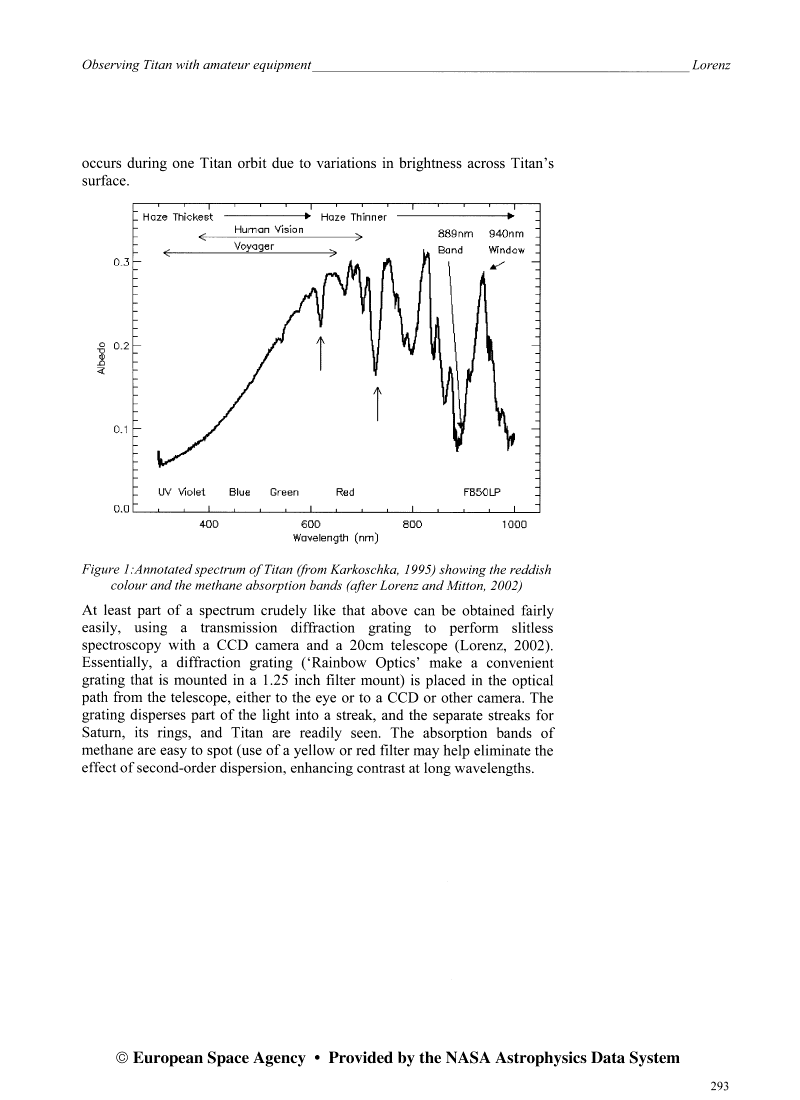
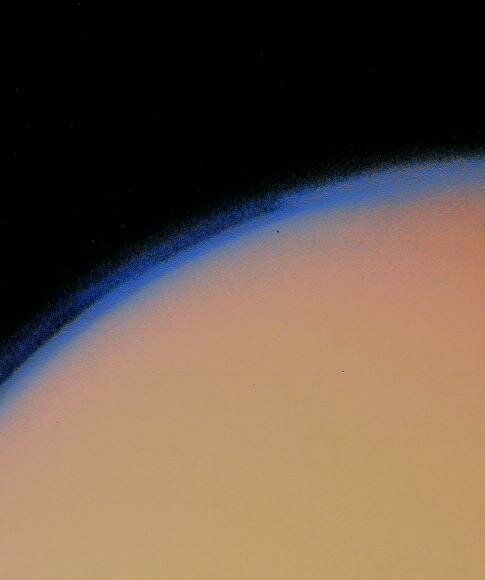
Voyager 1 & 2 (1980 - 1981)
No structure visible
on the surface
Karkoschka et al. 1995Smith et al. 1981
Smith et al. 1982Voyager 1 & 2 (1980 - 1981)


Titan wrong colors (OGB)
Titan true colors (RGB)
re-processed
original
Sensing Titan surface (1991)
90°W
270°W



The optical depths that we derive for Titan's haze and clouds are small enough to allow us to sense the surface of Titan at 4900, 6250, and 7700 cm-1. The most plausible interpretation of the albedos determined at these wavenumbers suggests a surface dominated by "dirty" water ice. A global ethane ocean is not compatible with these albedos.
Griffith et al. 19912.04 µm
2.09 µm
2.12 µm
2.17 µm
2.29 µm

2.04 µm 2.09 µm 2.12 µm 2.17 µm 2.29 µm

Smith et al. 1996
PIA01465Hubble Space Telescope (1994)
F1024M
0°
180°
90°W
270°W
First orbital observations
0.85 - 1.05 µm

F850LP
F673N
HST
F850LP
Voyager 1
Orange filter
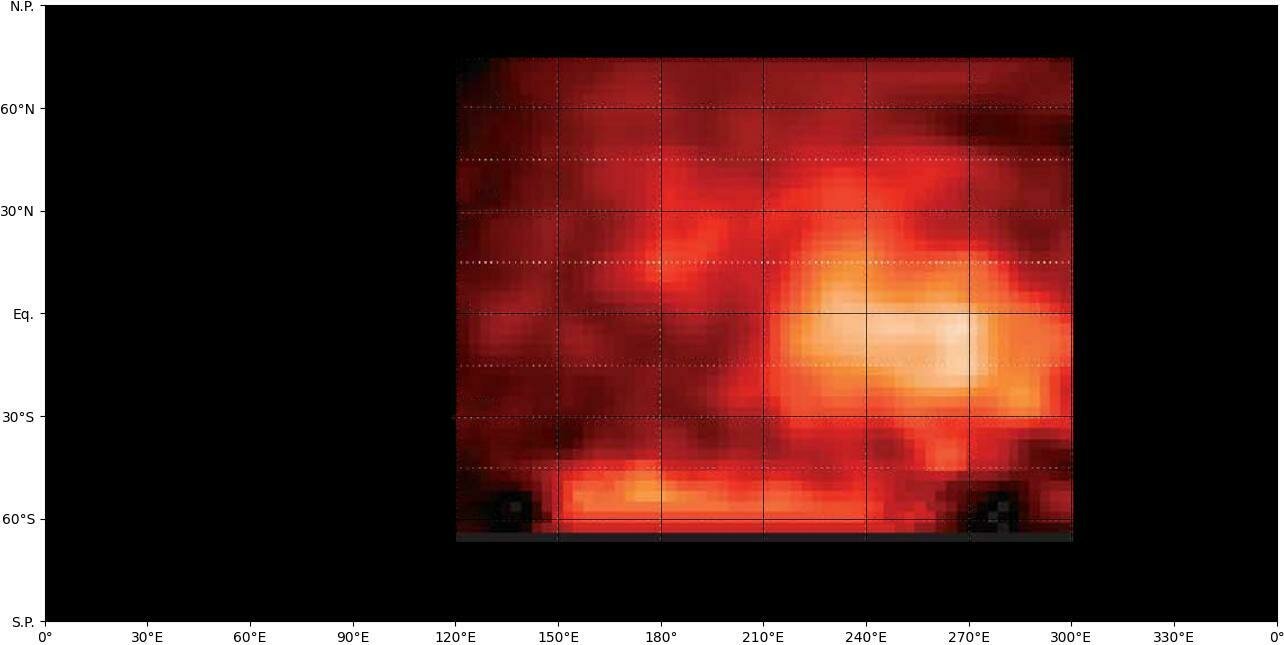
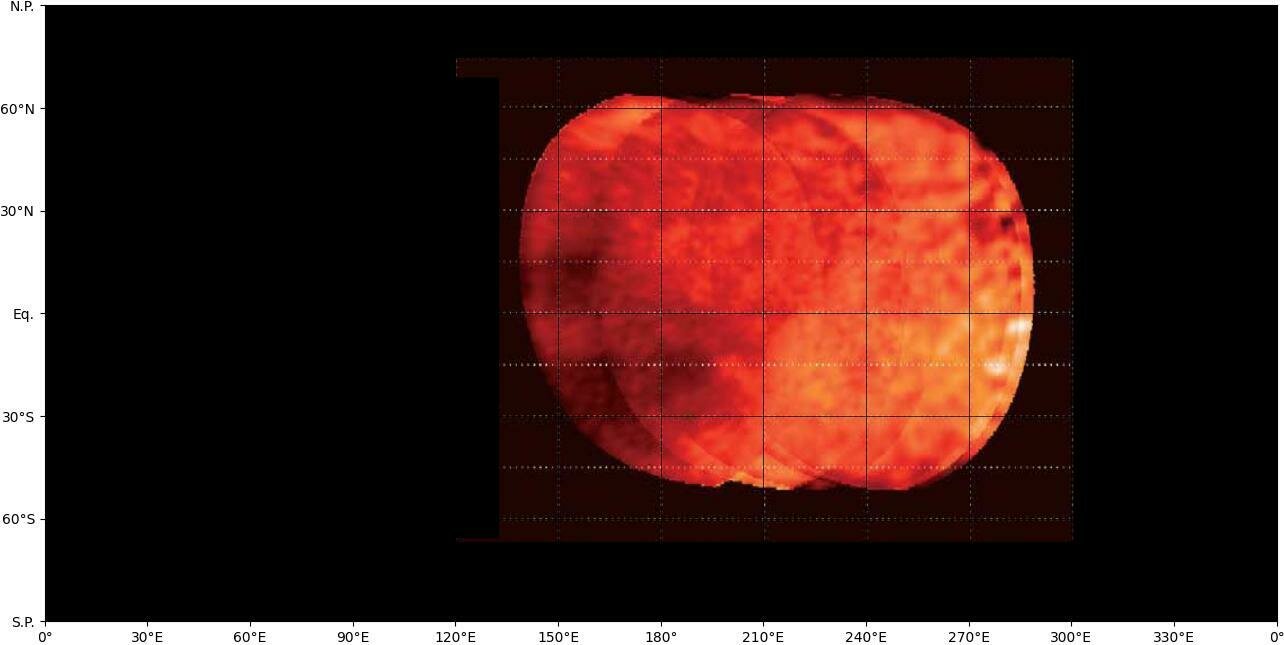
Adapted from
Richardson et al. 2004CFHT (1998)
Coustenis et al. 2001H1 (1.60 µm) | H2 (1.64 µm) | J1 (1.29 µm) | J2 (1.18 µm)

with adaptative optics
in the wings of the CH4 bands
Resolved ground based images
Gemini & Keck (2001)
Roe et al. 200218/12/2001
Resolved ground based images with adaptative optics

20/12/2001
21/12/2001
He I (2.06 µm)
VTL (2002-2004)

Hartung et al. 2004(1.575, 1.600, 1.625) µm

1.575 µm
Best knowledge
before Cassini-Huygens

Gendron et al. 2004TA Cassini first observations (2004)

VIMS
ISS CB3 (0.930 µm)
ISS UV3 (0.338 µm)
1477459118_1
N1477322123_4
N1477322195_4Huygens landing (2005)
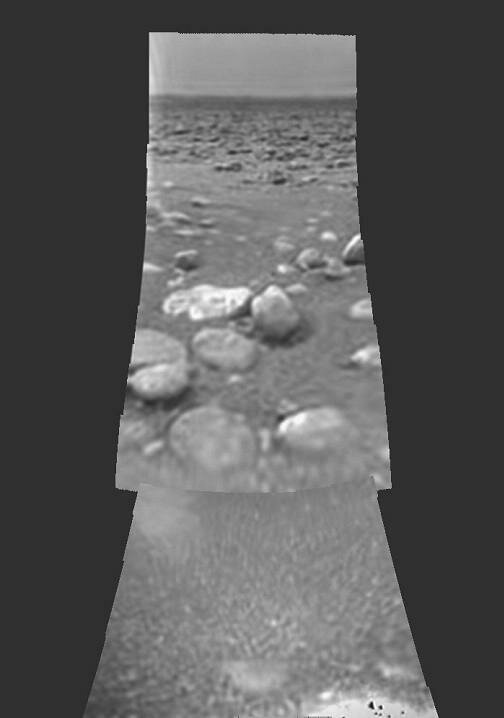
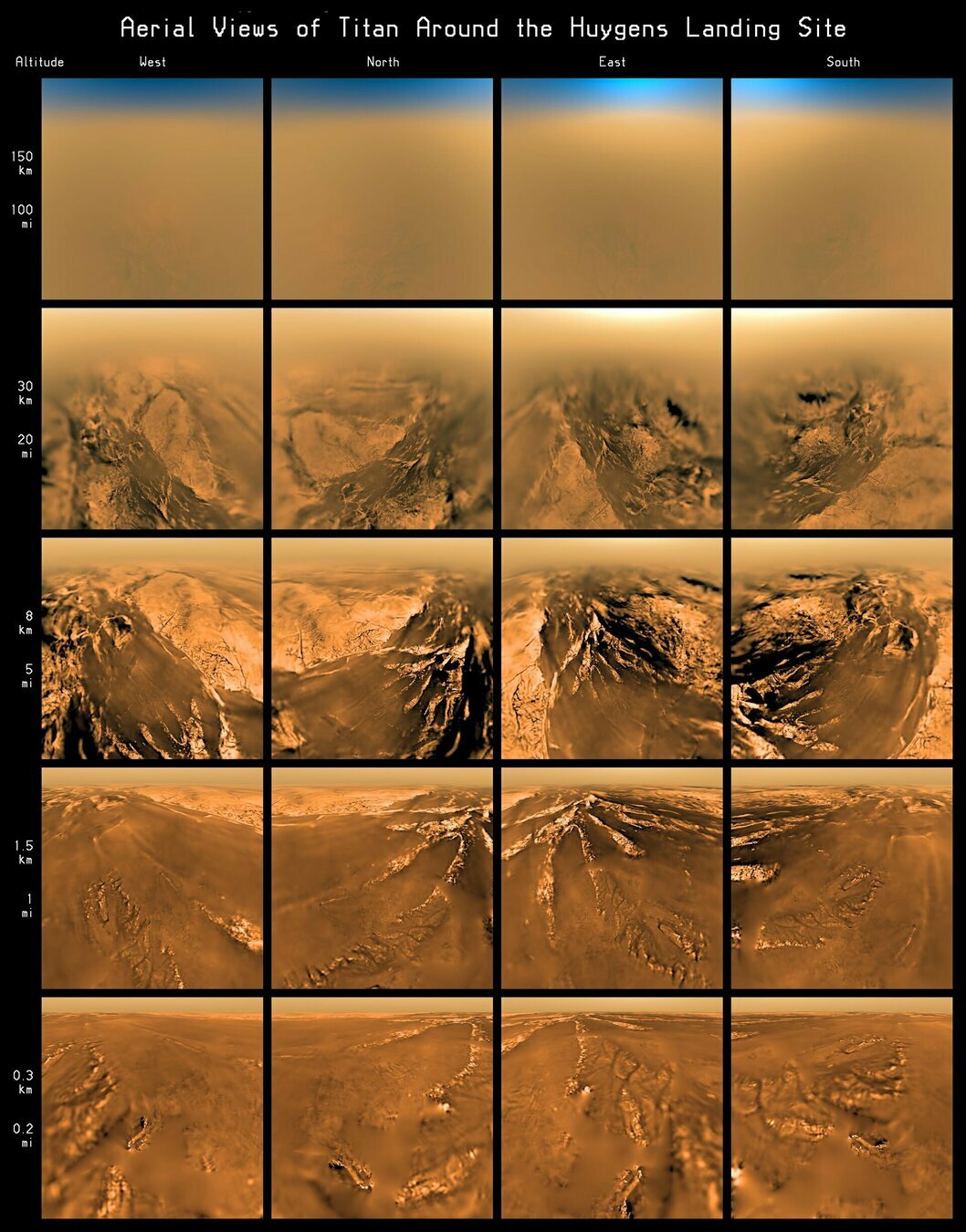
Seeing below the haze
down to the ground
PIA08119PIA06440Huygens
from landscape
to map
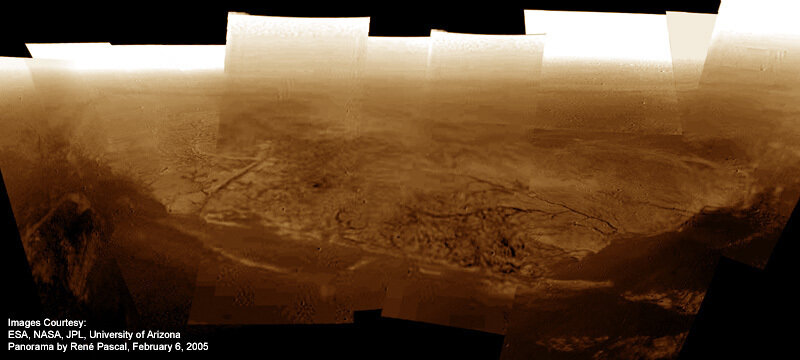
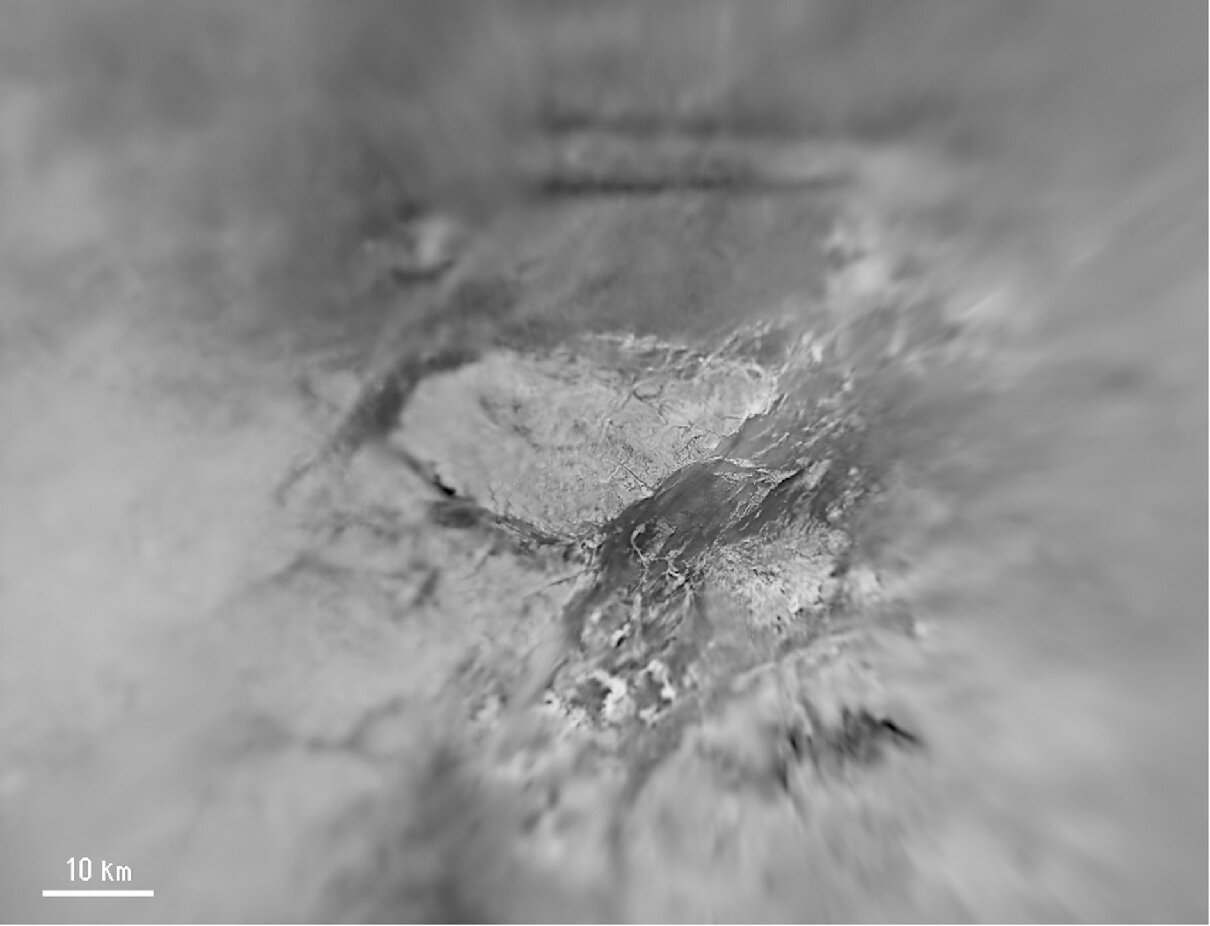
Karkoschka et al. 2016+
Building a global VIMS map
2004
2005
2010
2016
2018
1.4 km/px
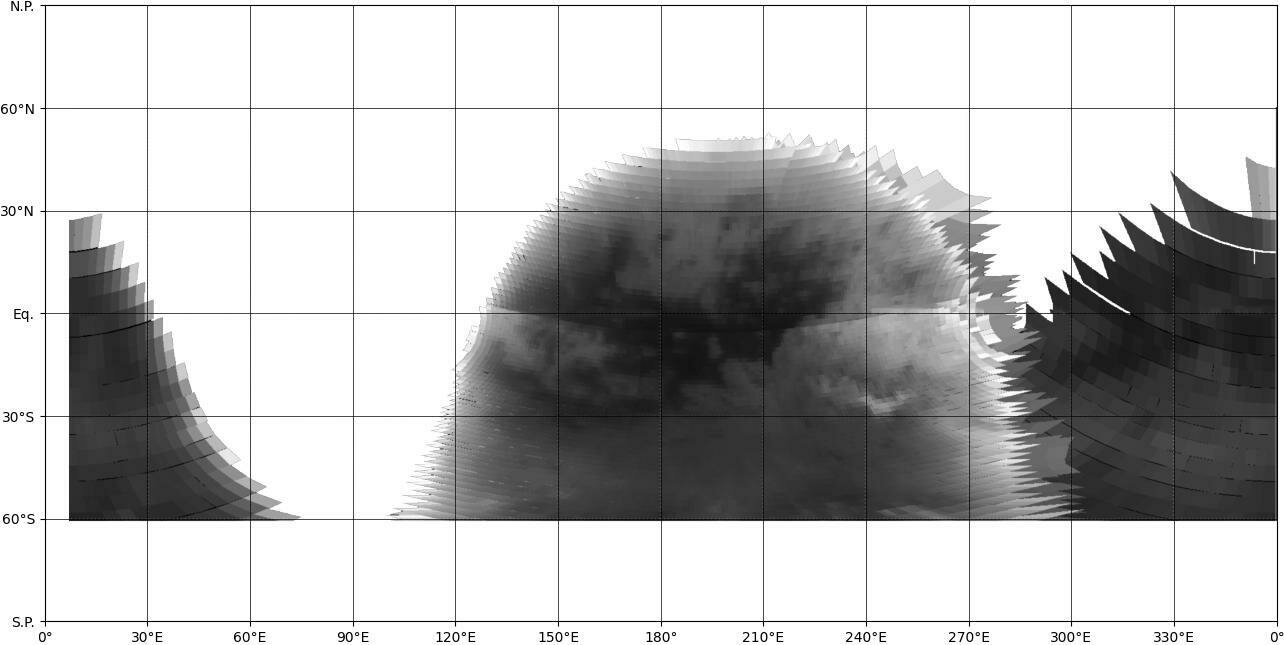
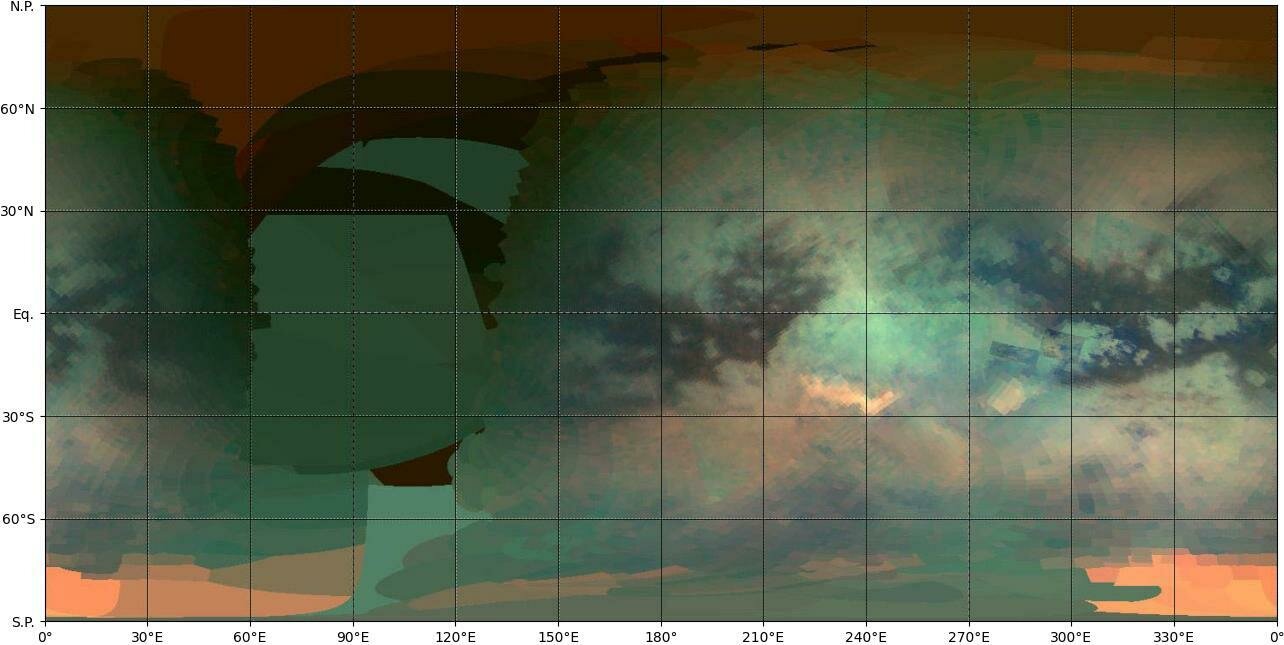
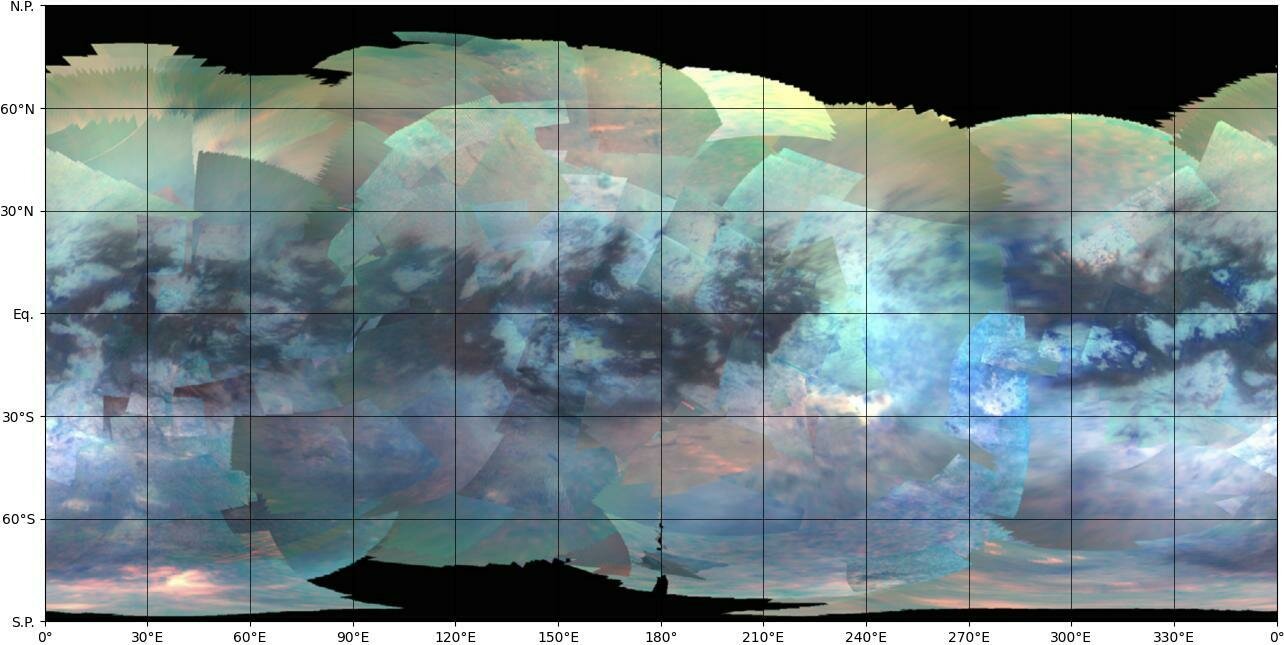
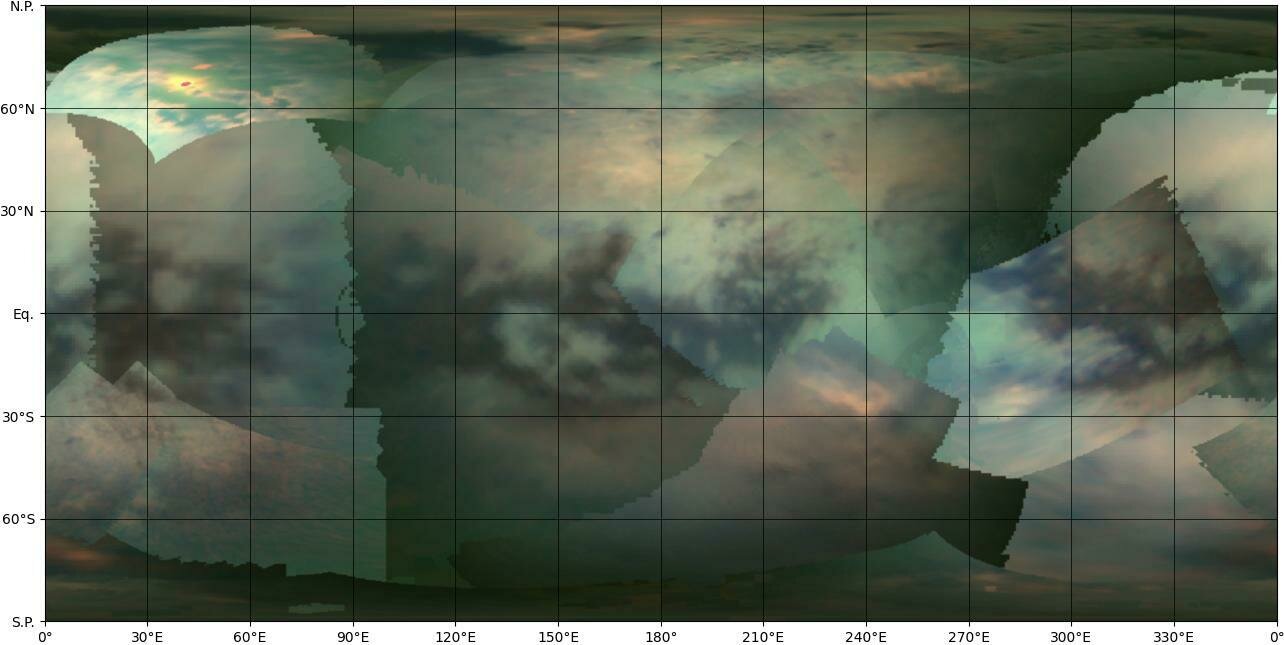
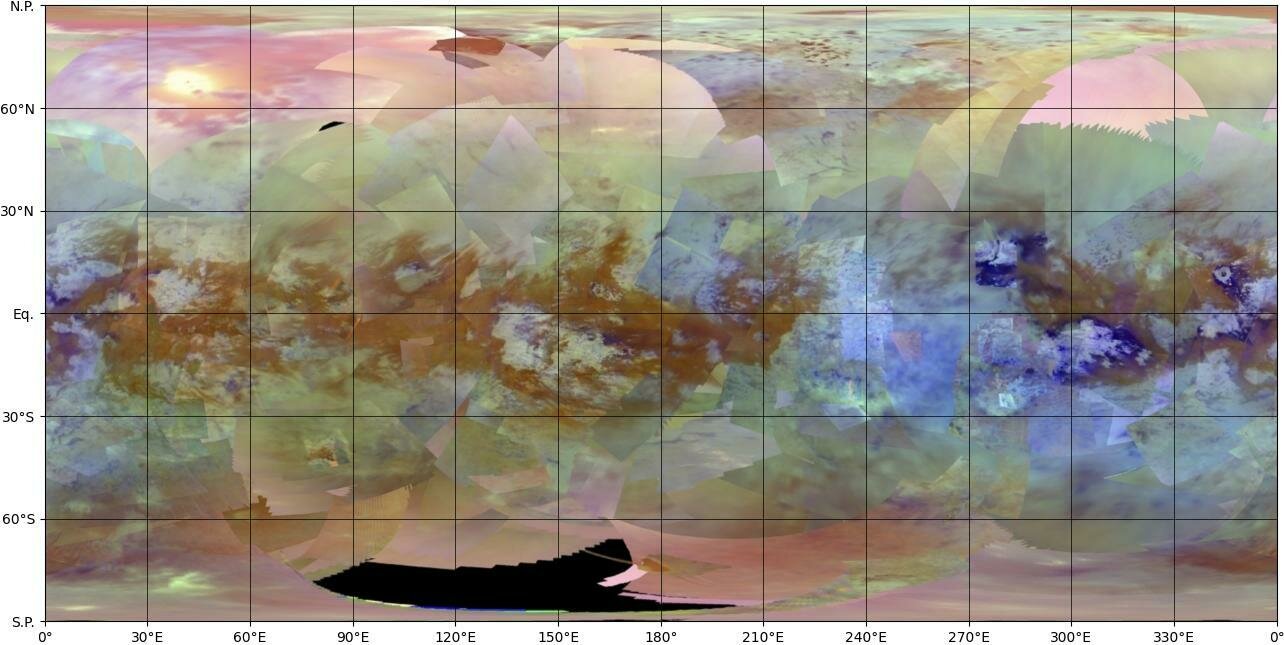
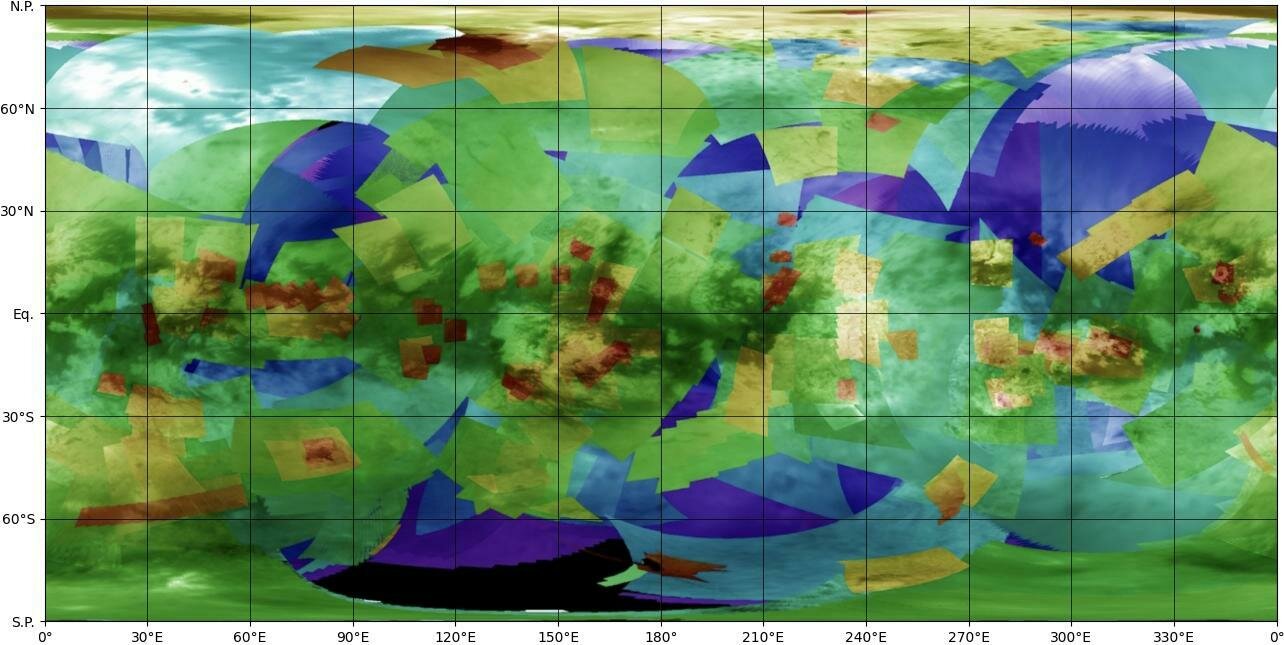

Le Sotin et al. 2005
Barnes et al. 2007
Le Mouélic et al. 2012
MacKenzie et al. 2016
Le Mouélic et al. 2019
Building a global ISS map
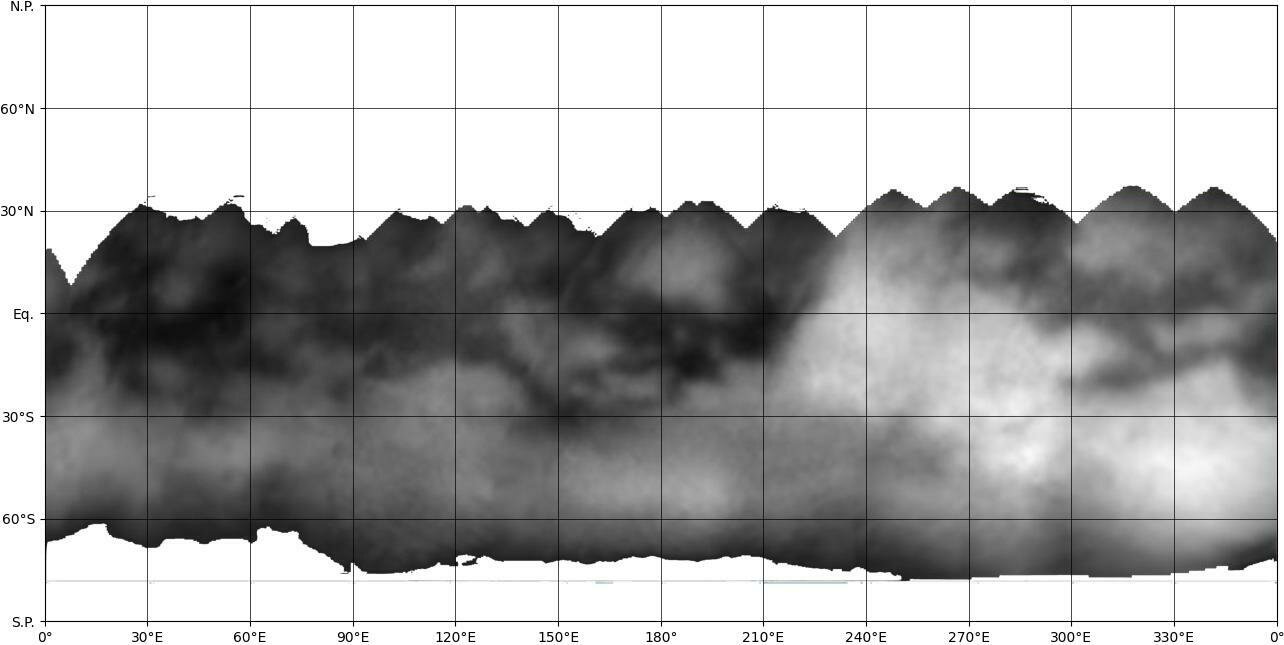
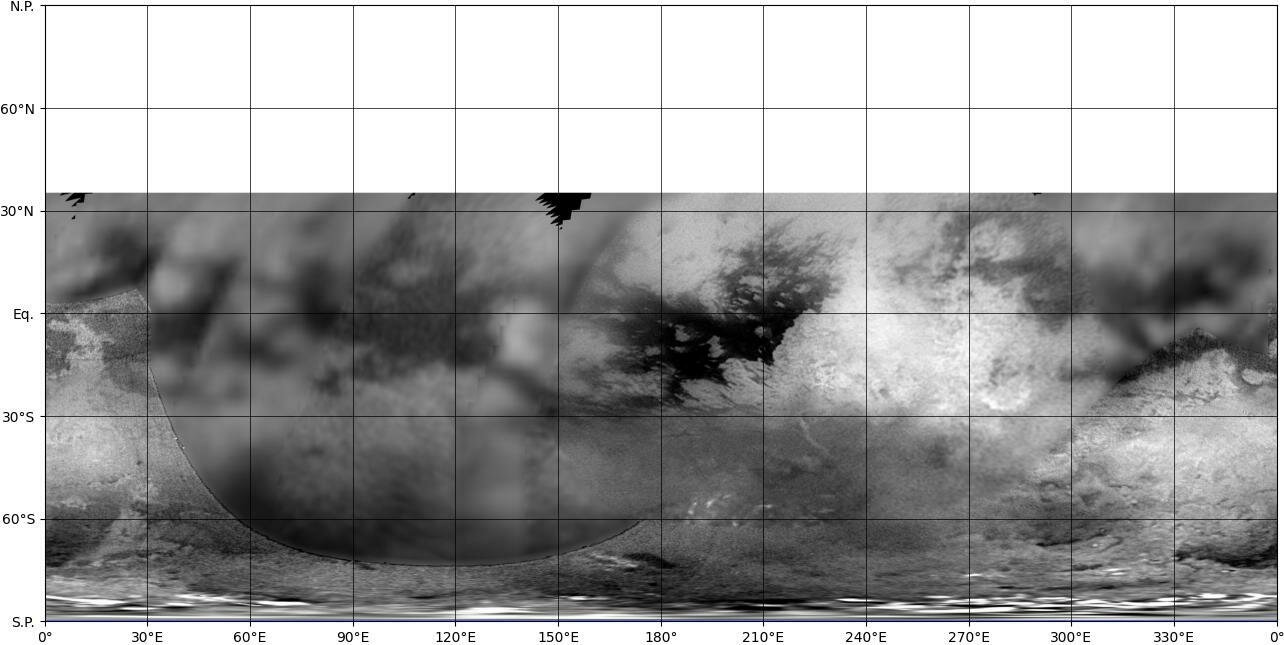
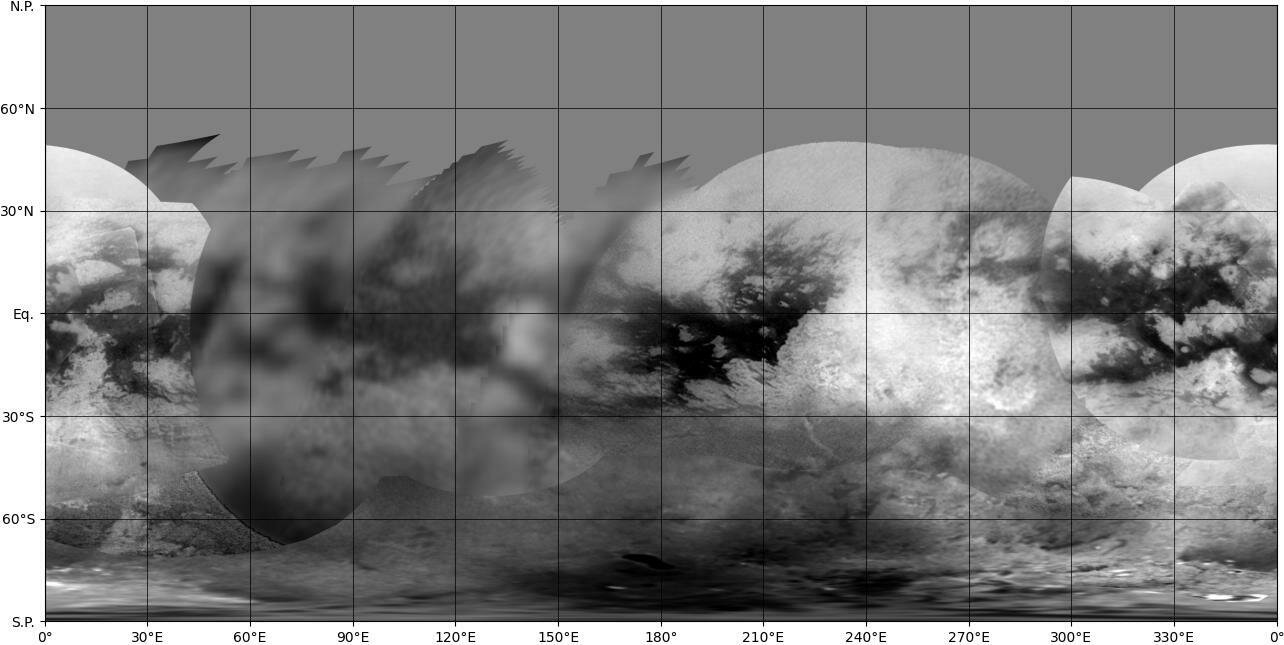
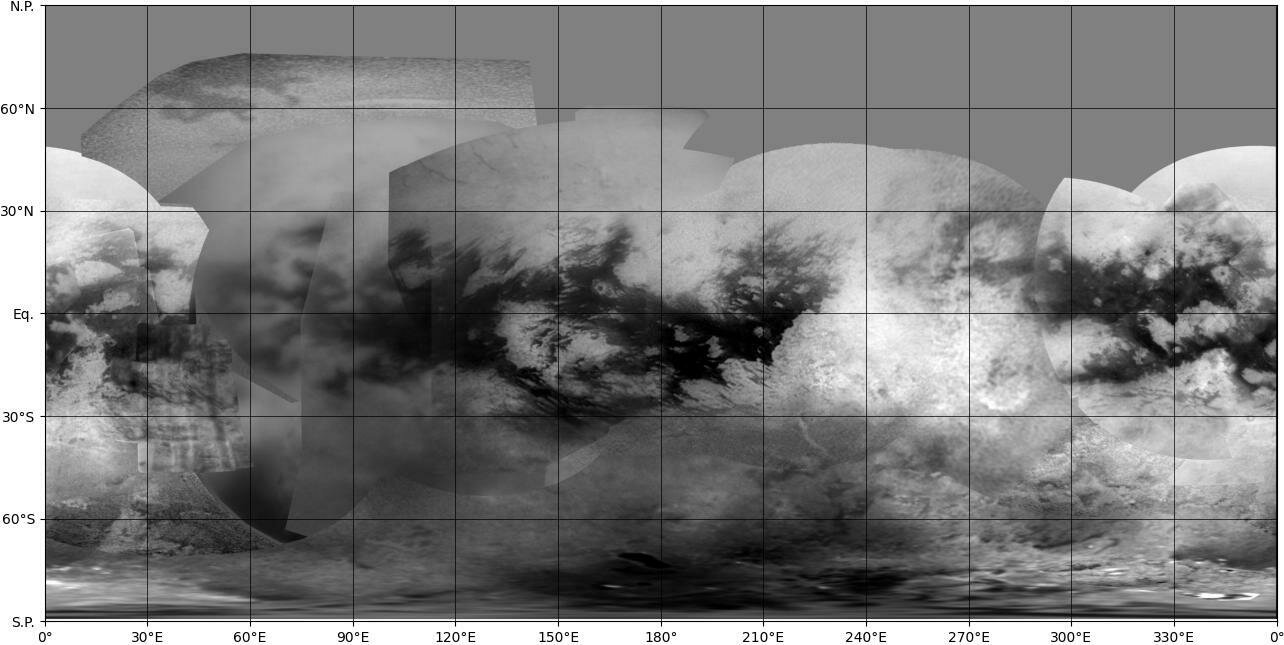
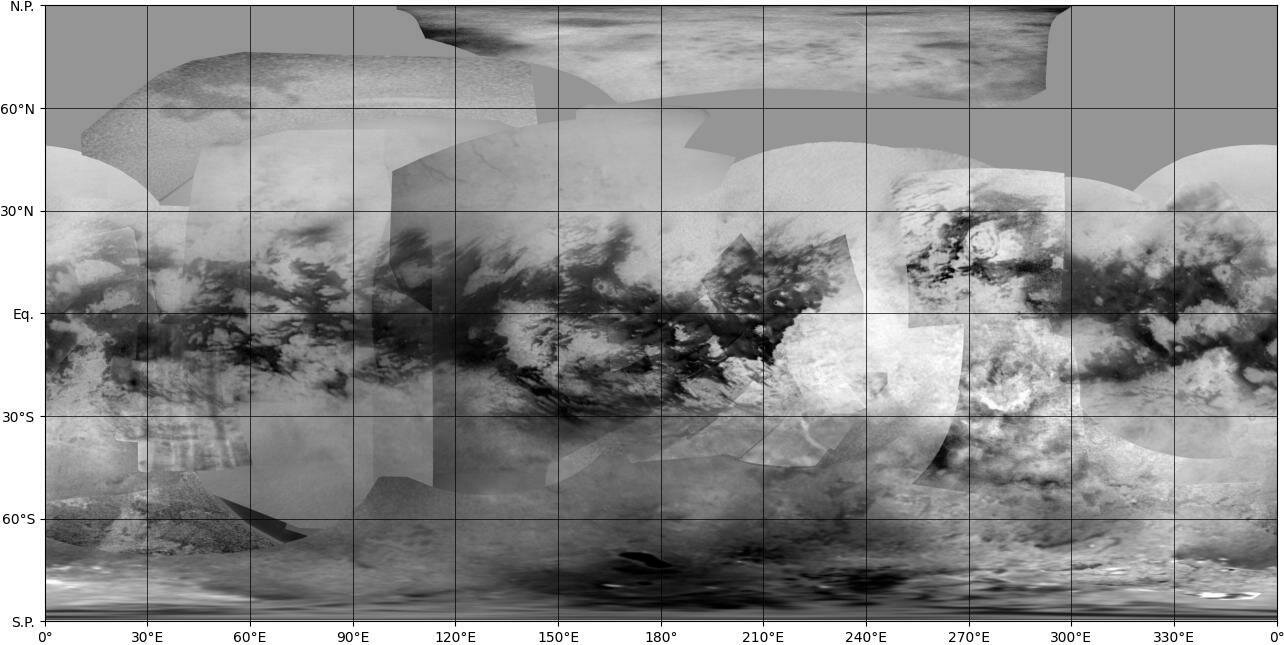
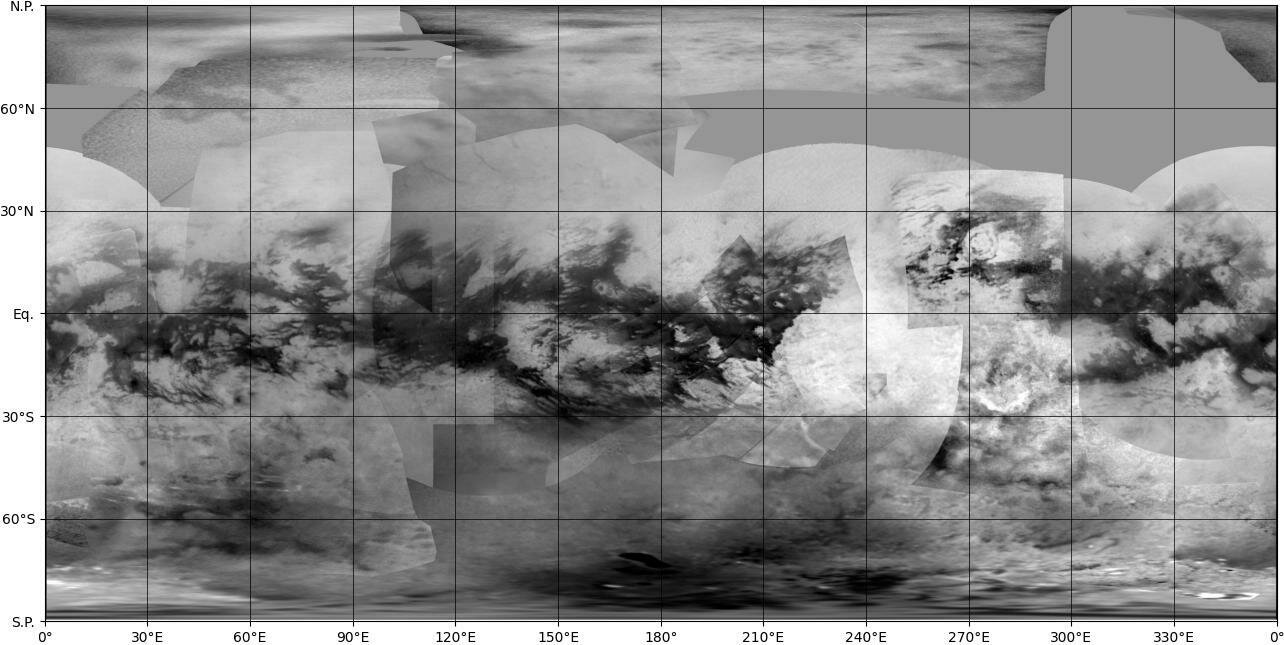
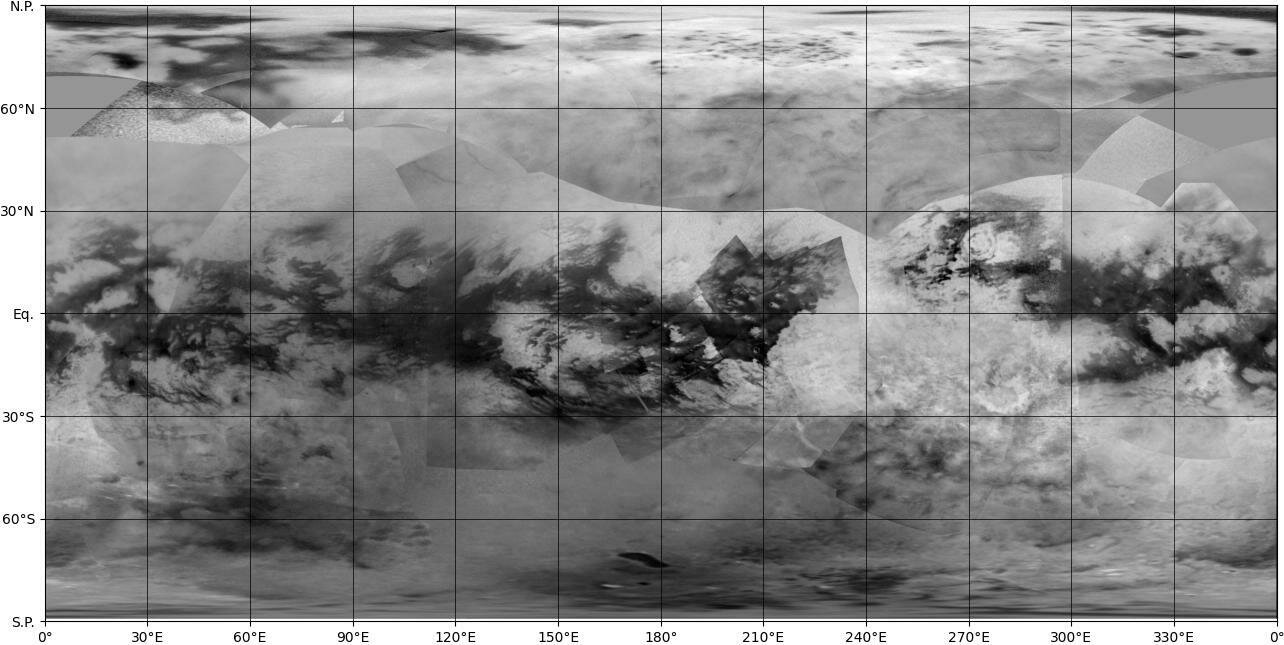
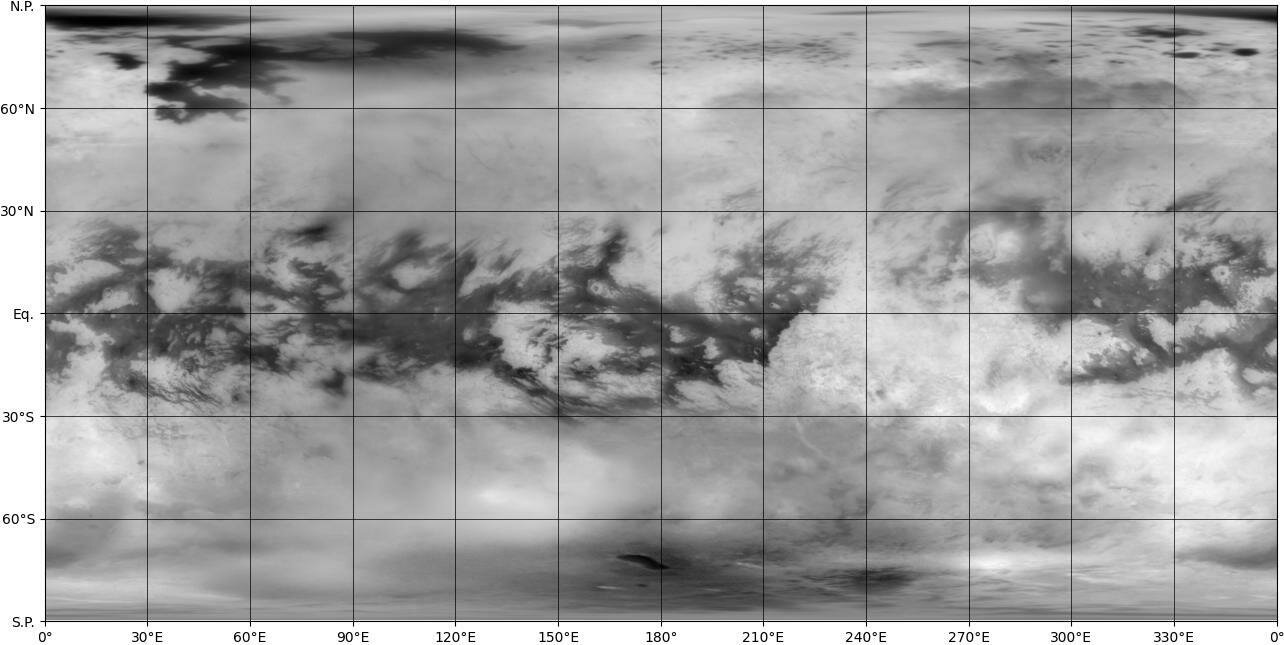
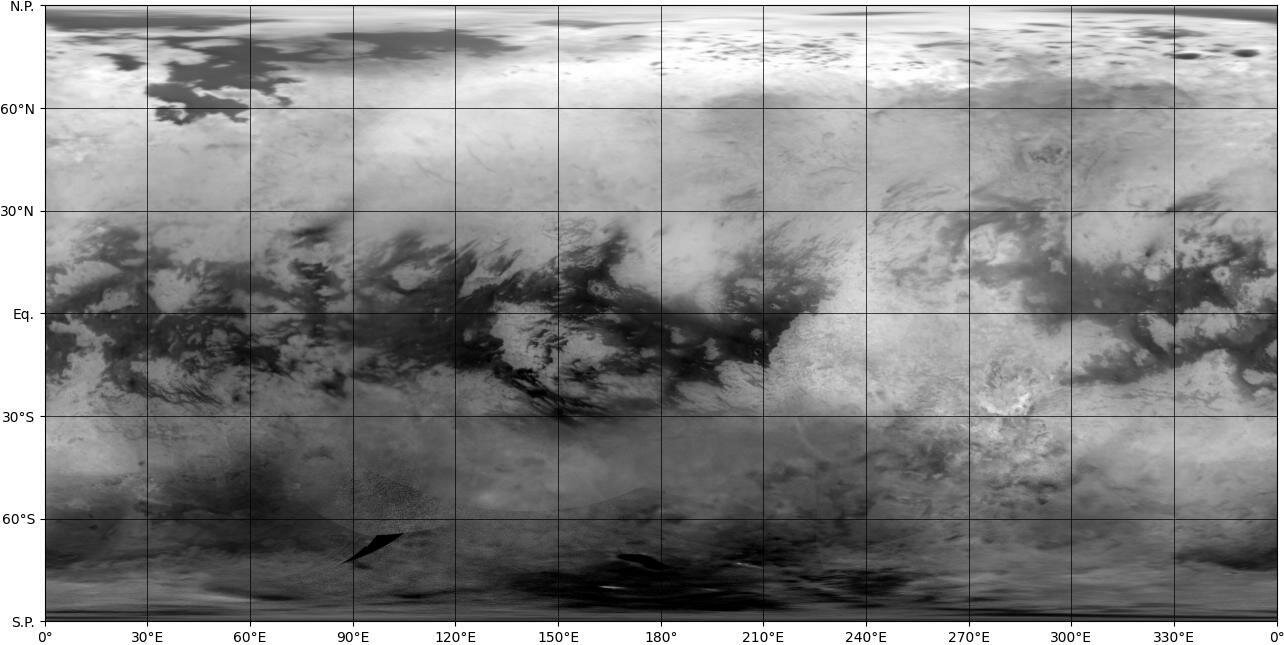
2004
2005
2006
2007
2009
2011
2015
2018
2025
PIA06086
PIA06201
PIA08346
PIA08399
PIA11149
PIA14908
PIA19658
PIA22770
Weller et al. 2025
730 m/px
Building a global RADAR map
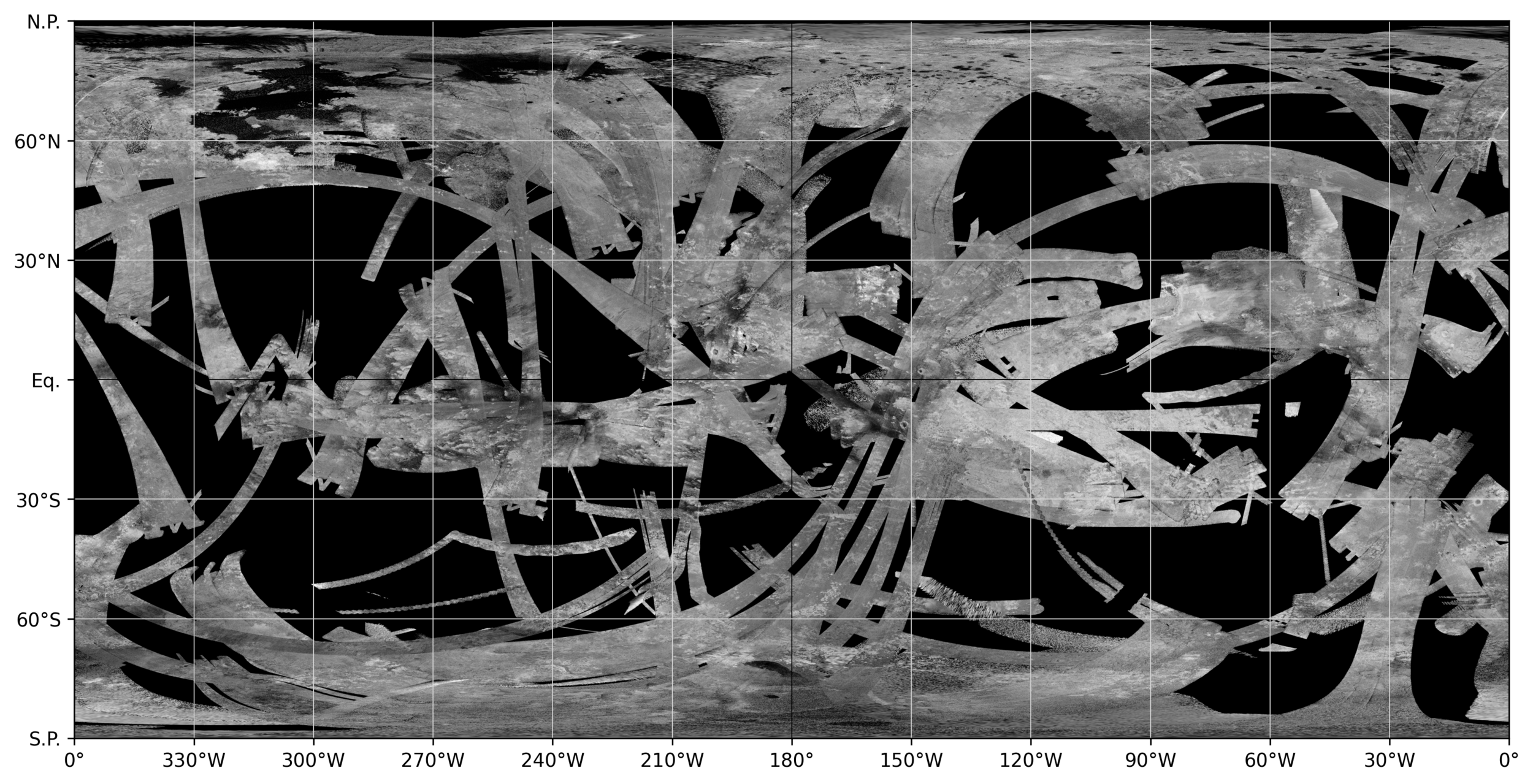
350 m/px
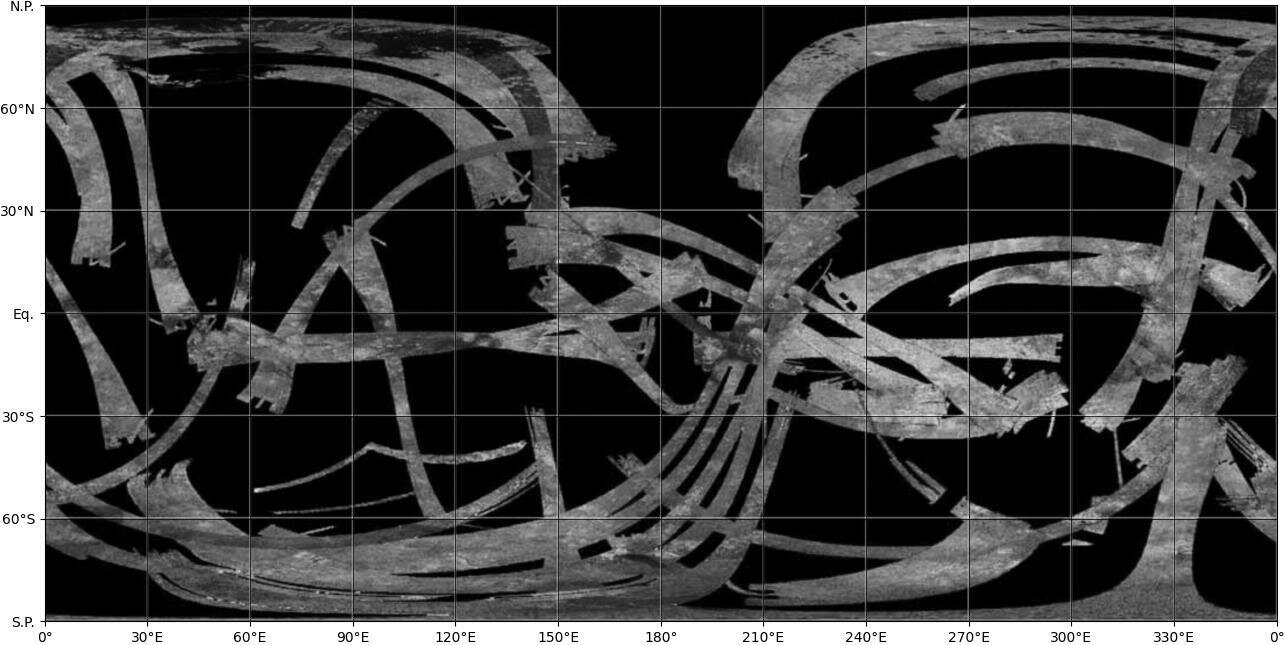
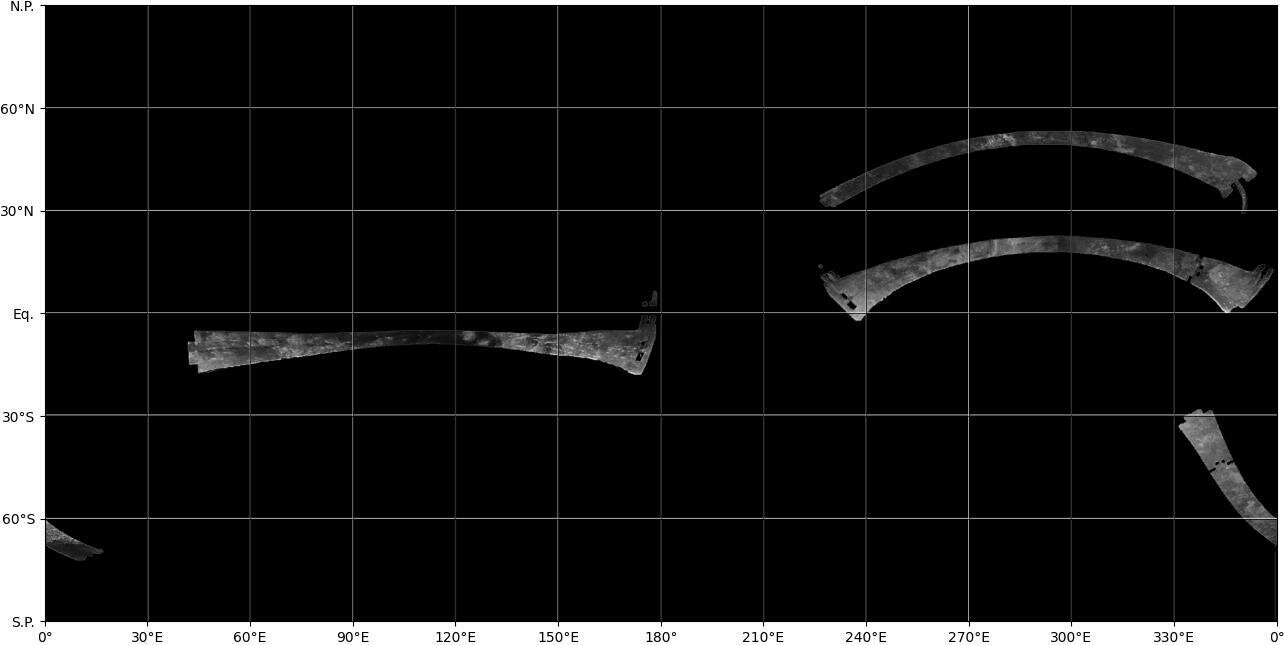
2005
2011
2015
PIA08100
PIA20024
RADAR Team / USGS
Geological global map
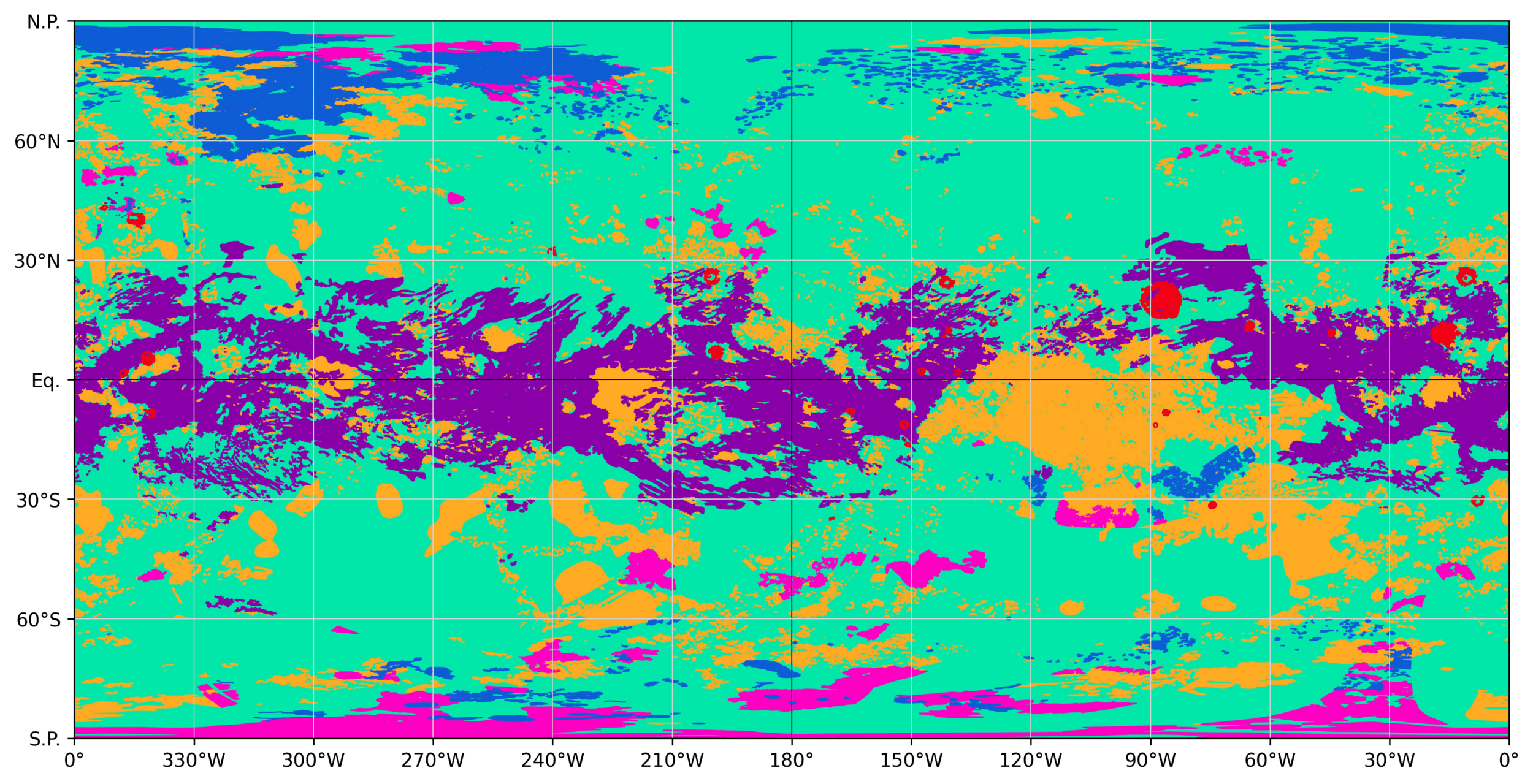

Lopes et al. 2020Merging the datasets VIMS + ISS
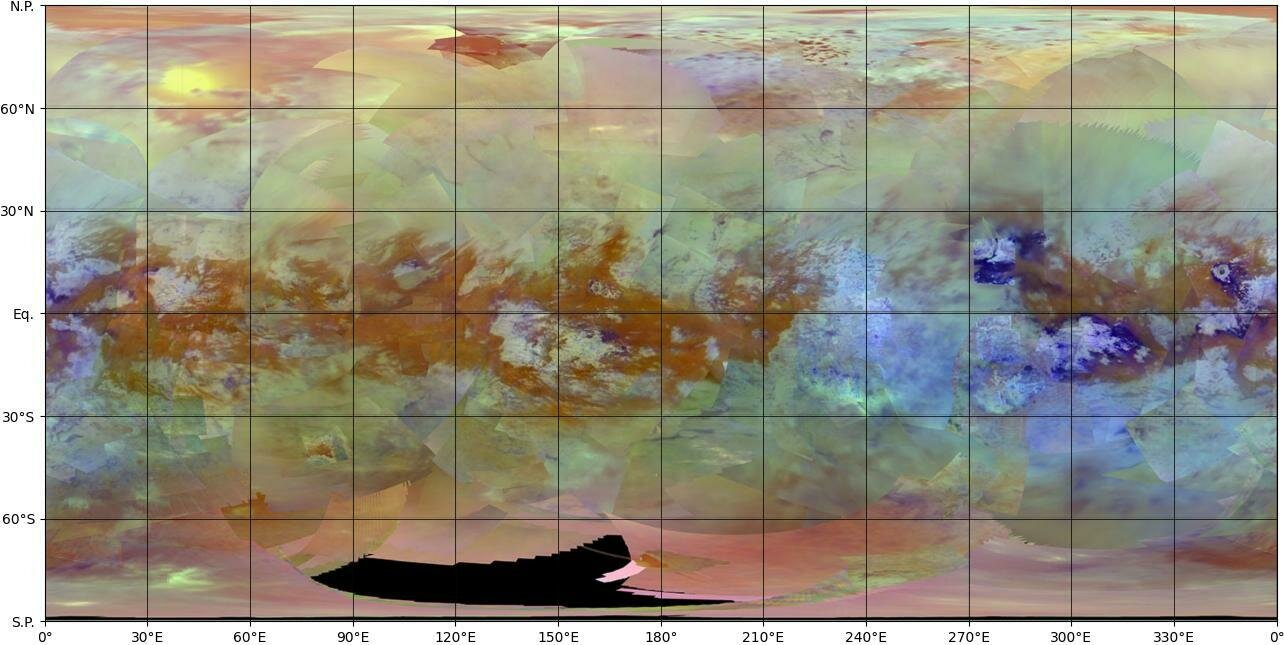
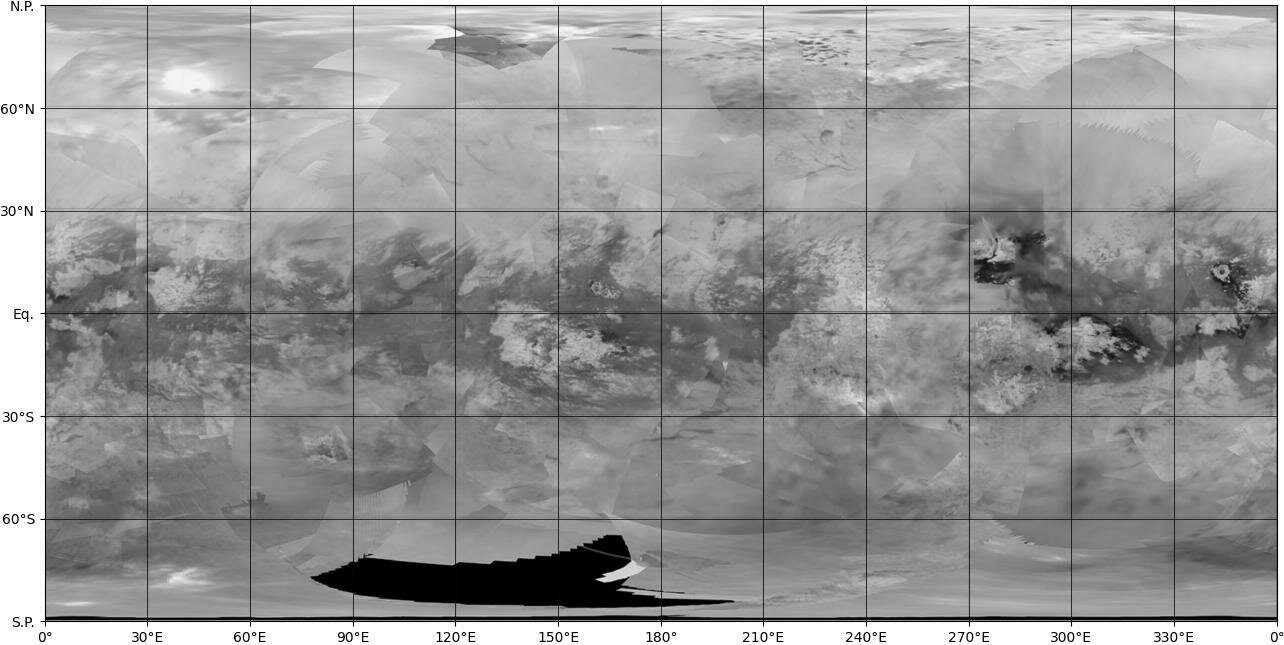
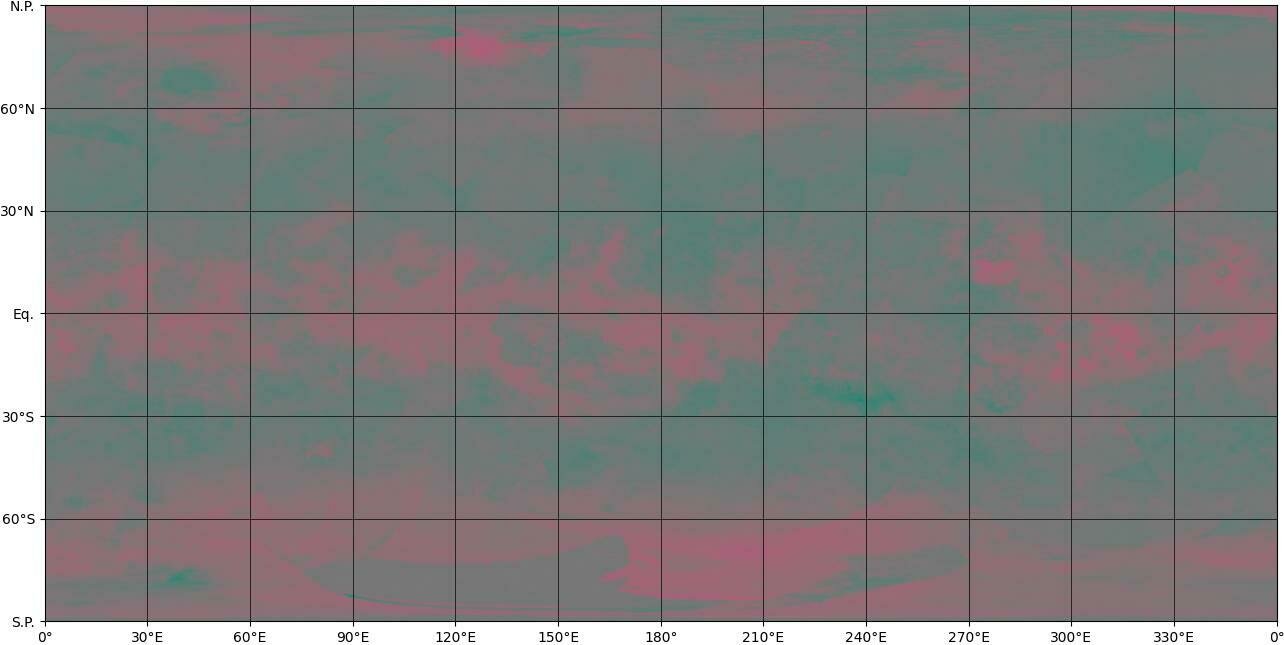
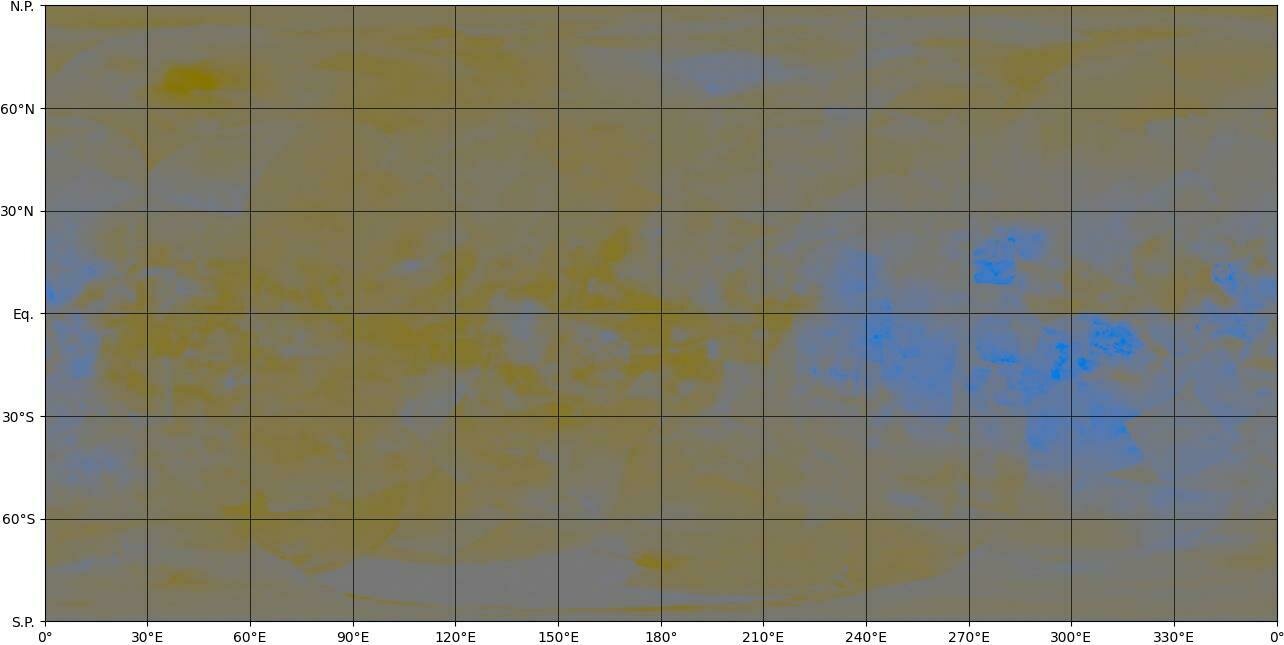
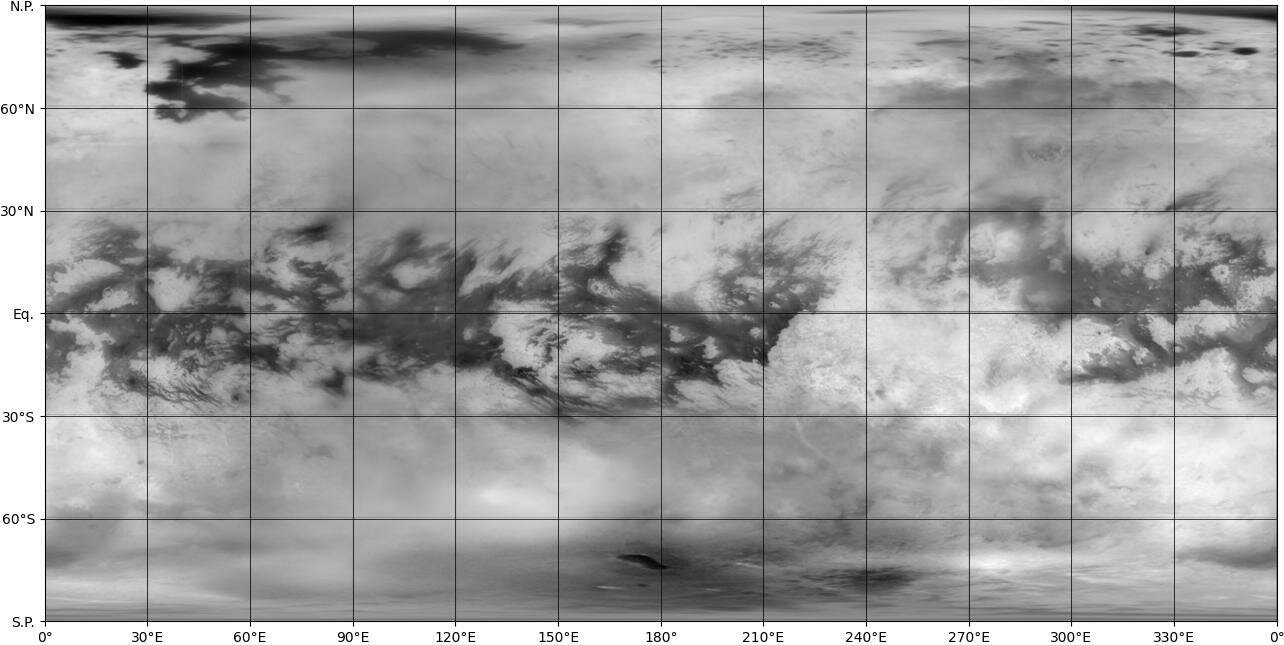
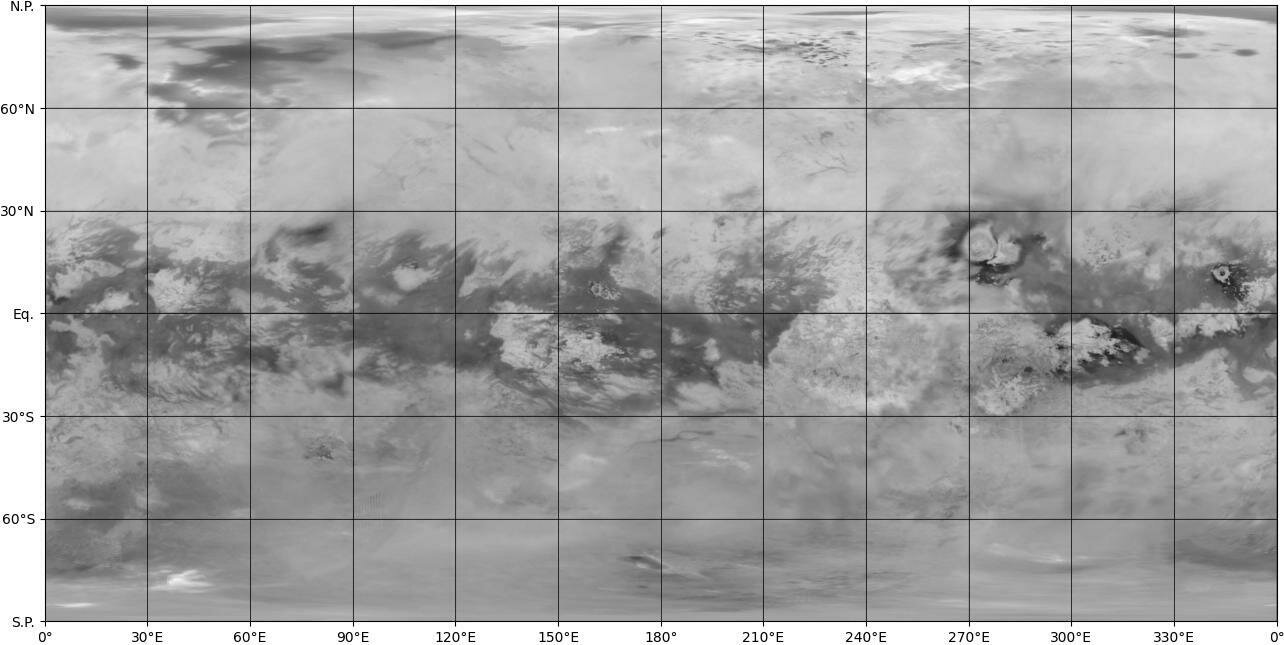
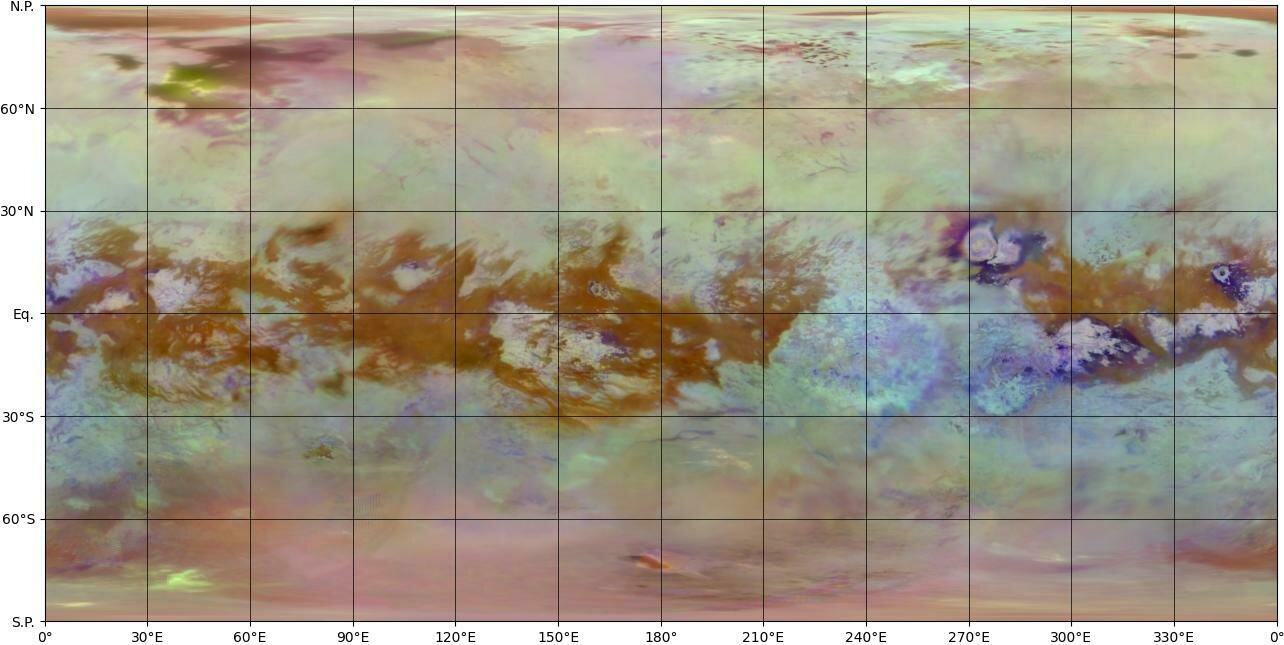

VIMS
VIMS (L*)
VIMS (a*)
VIMS (b*)
ISS
VIMS + ISS (L*)
VIMS + ISS
Seignovert et al. 2019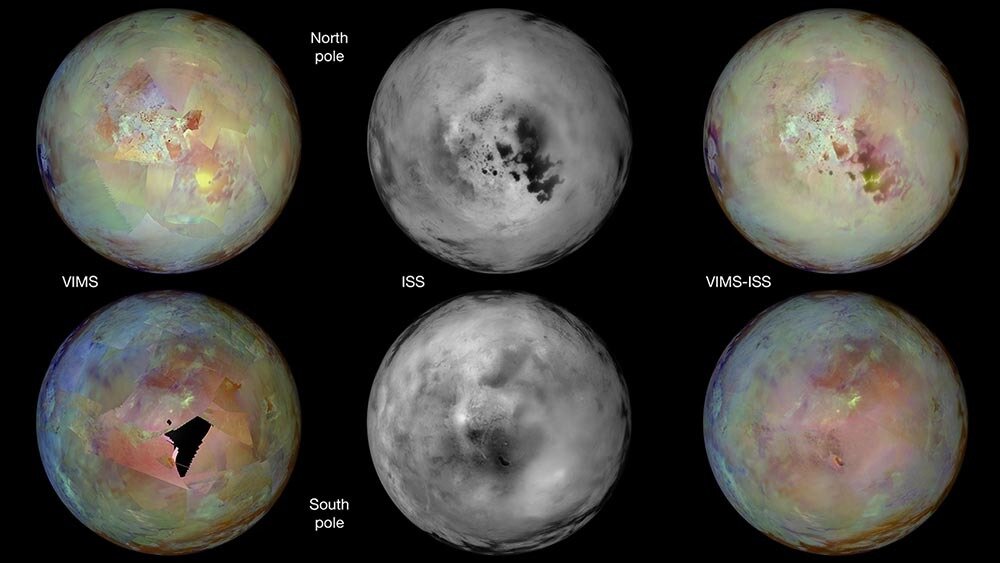
Merging the datasets VIMS + ISS
Seignovert et al. 2019landing site

10.573°S 192.335°W
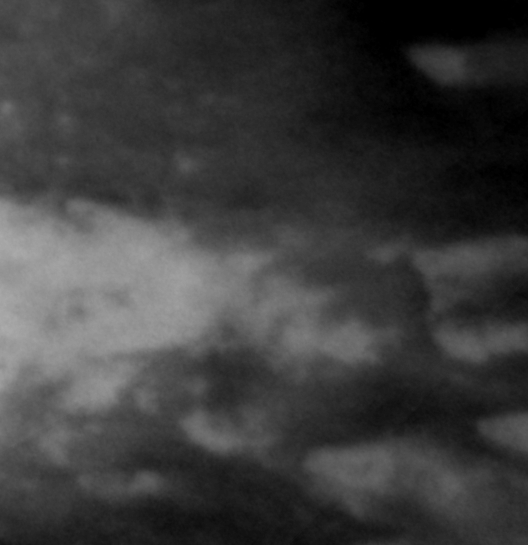
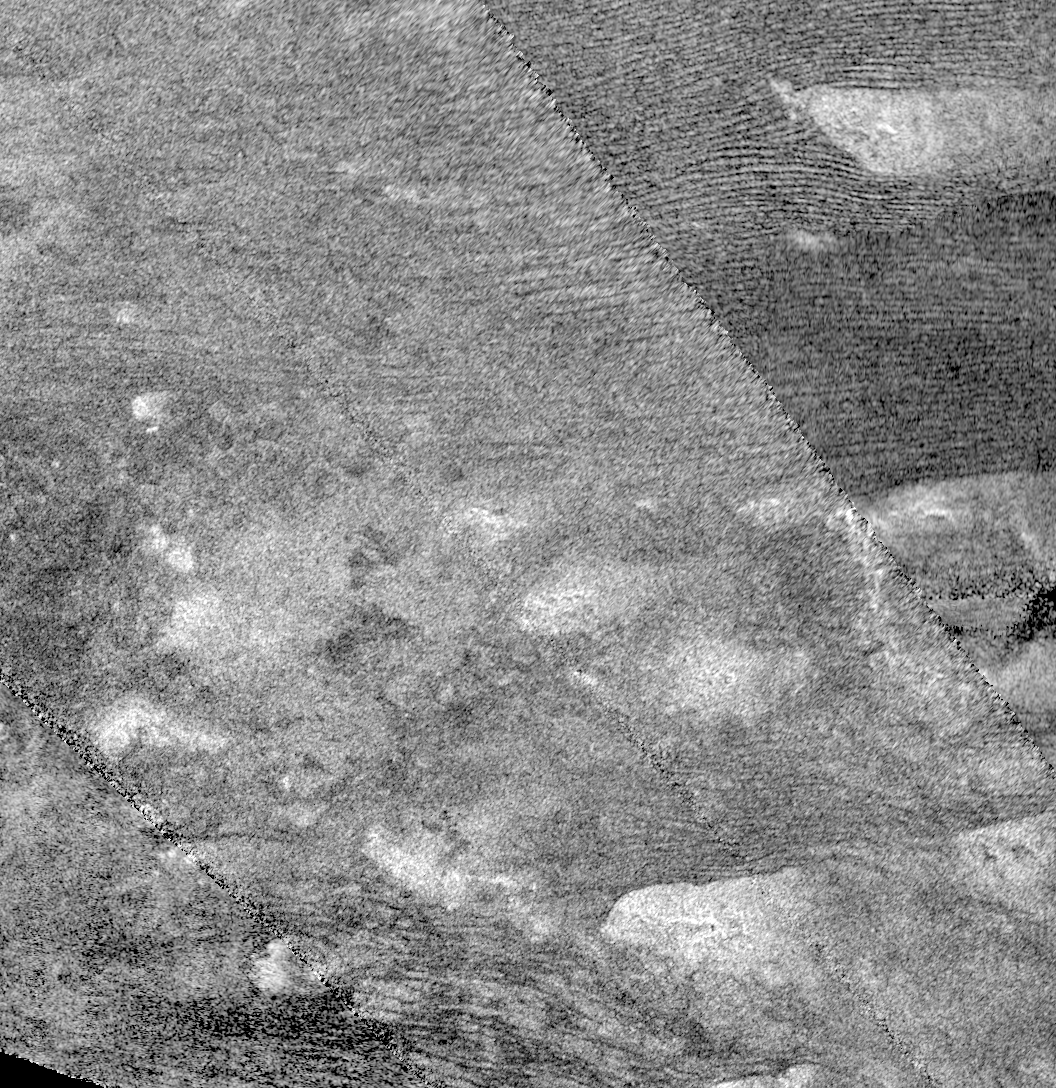
VIMS
(1.59 / 1.27 µm, 2.03 / 1.27 µm, 1.27 / 1.08 µm)
ISS (0.930 µm)
RADAR (2.2 cm)

50 km
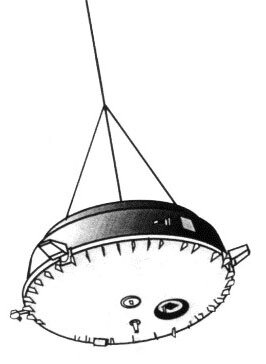
+
+
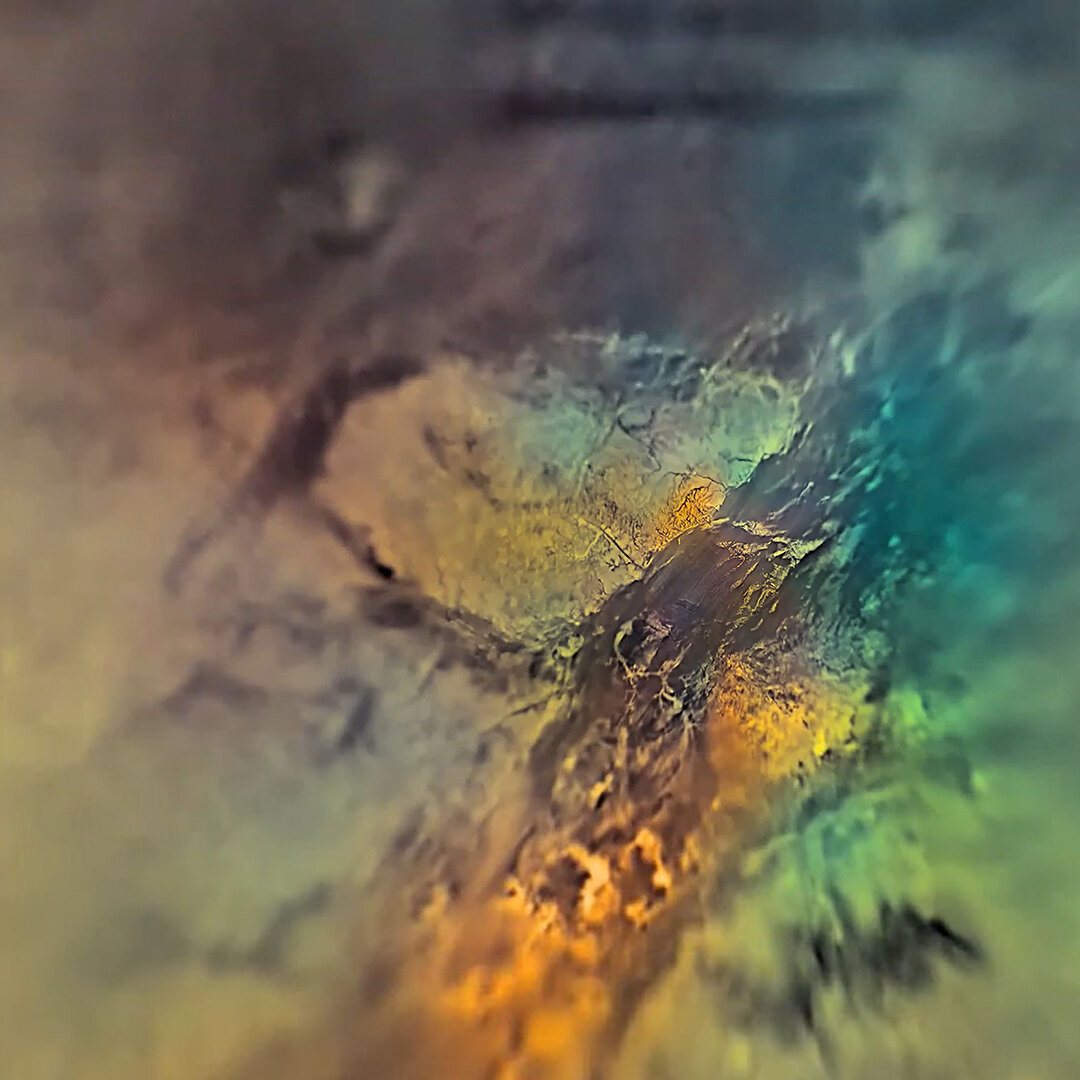
DISR
(0.85 + 0.754) µm / 2
0.823 µm
0.935 µm
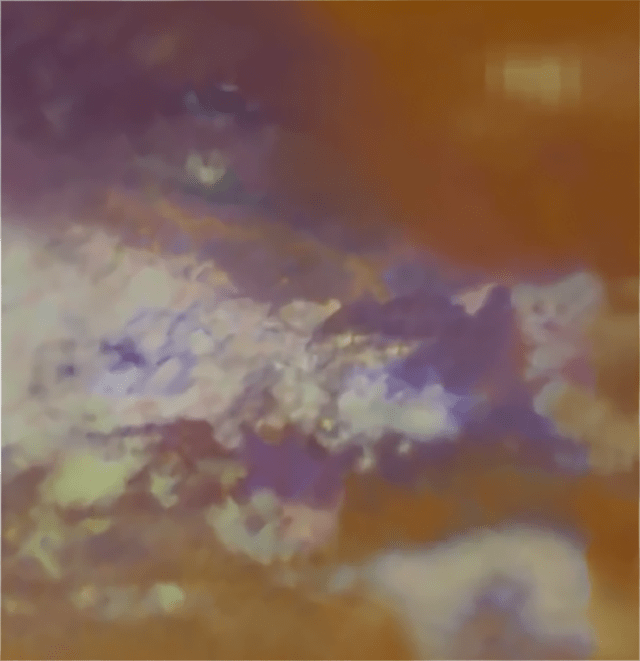
+
Karkoschka et al. 2016
Le Mouélic et al. 2019+
Selk crater
landing site (2034)
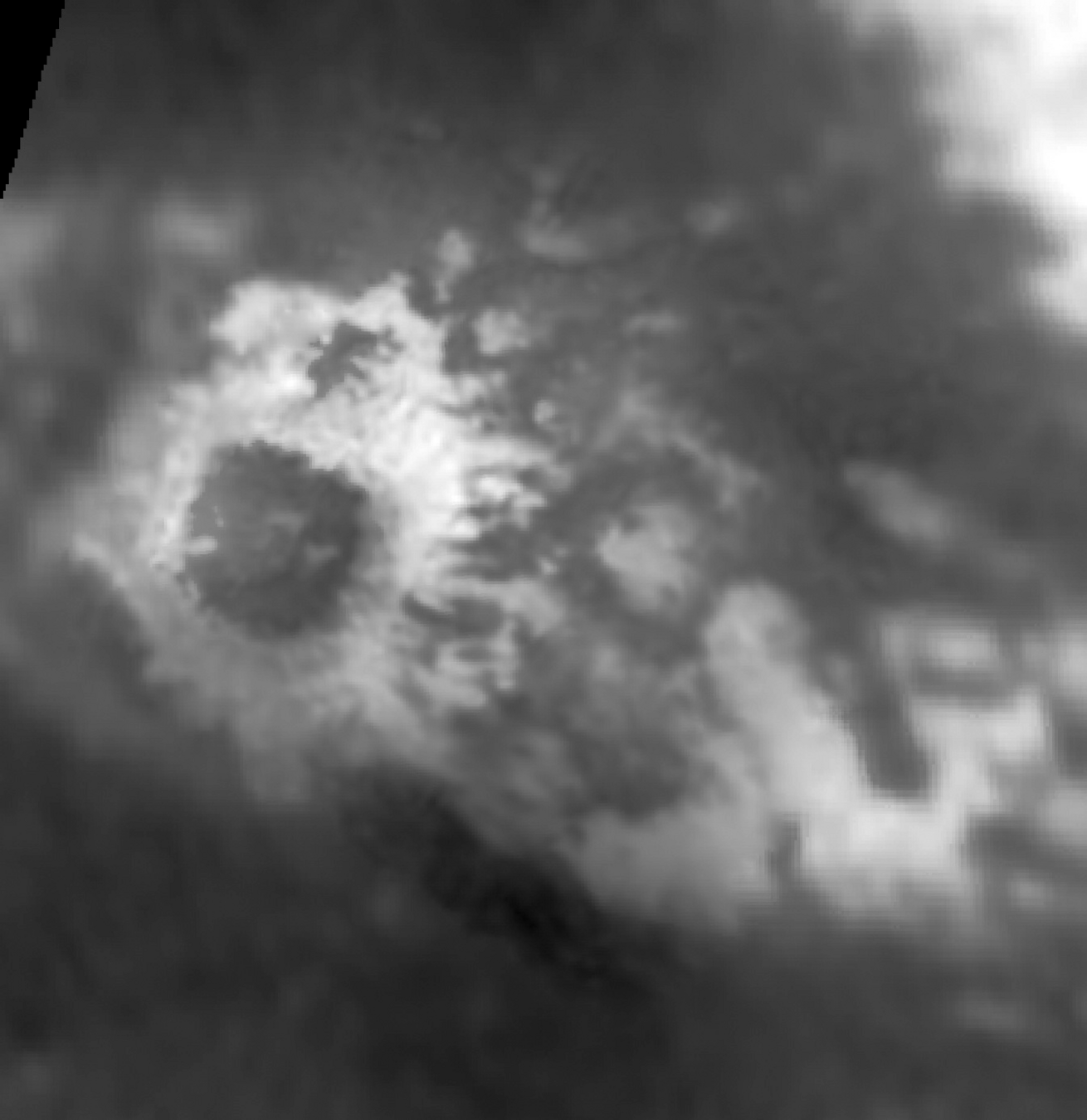
VIMS (1.58 µm)

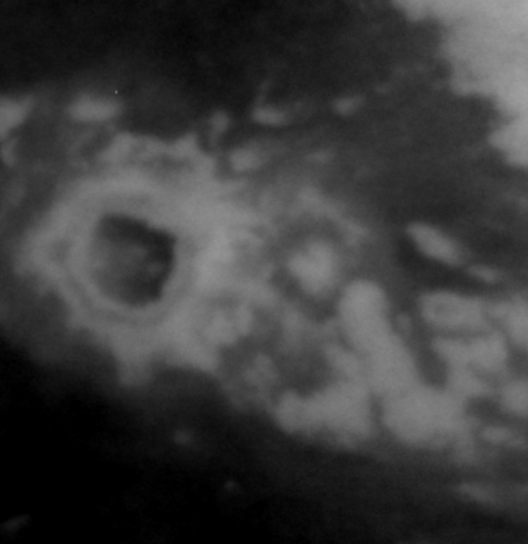
ISS (0.930 µm)
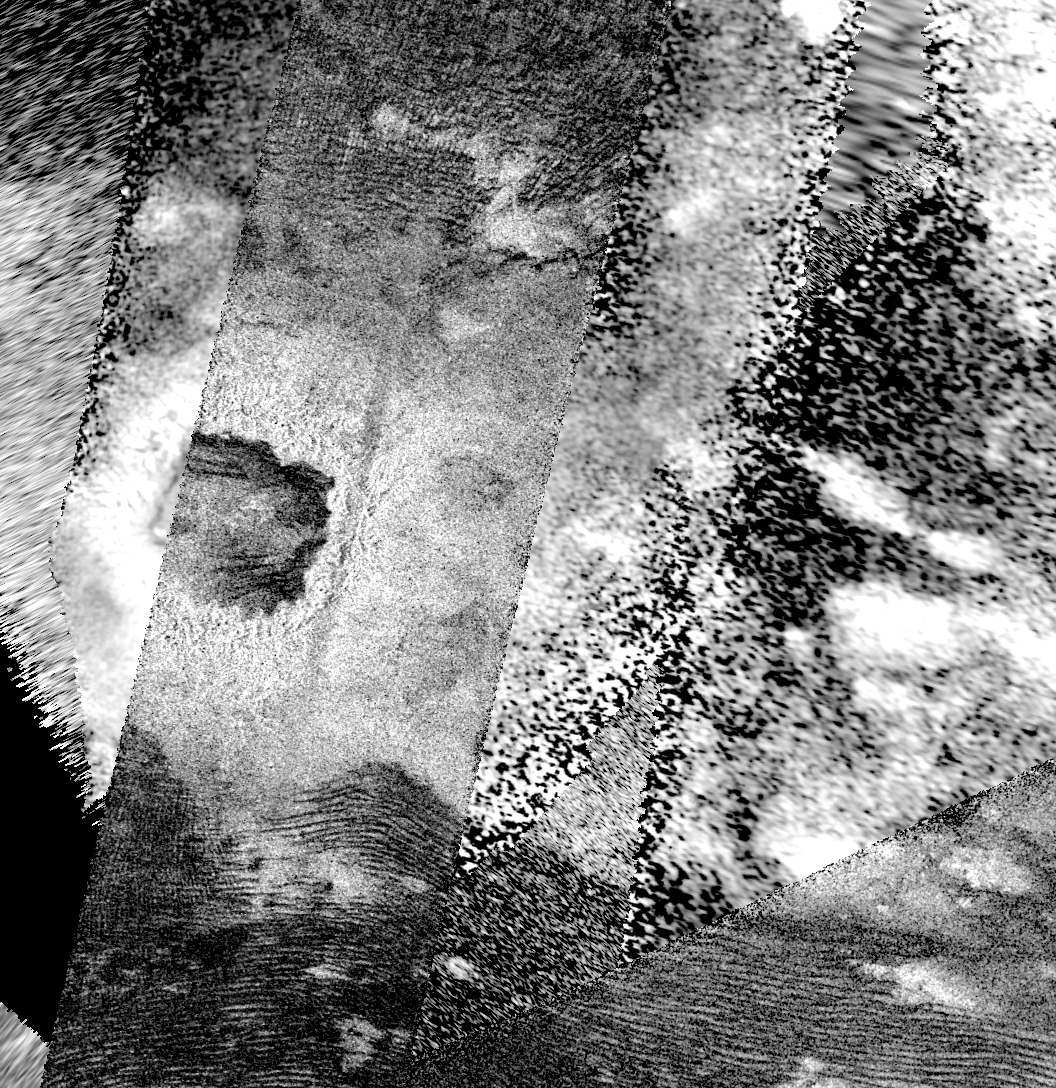
RADAR (2.2 cm)

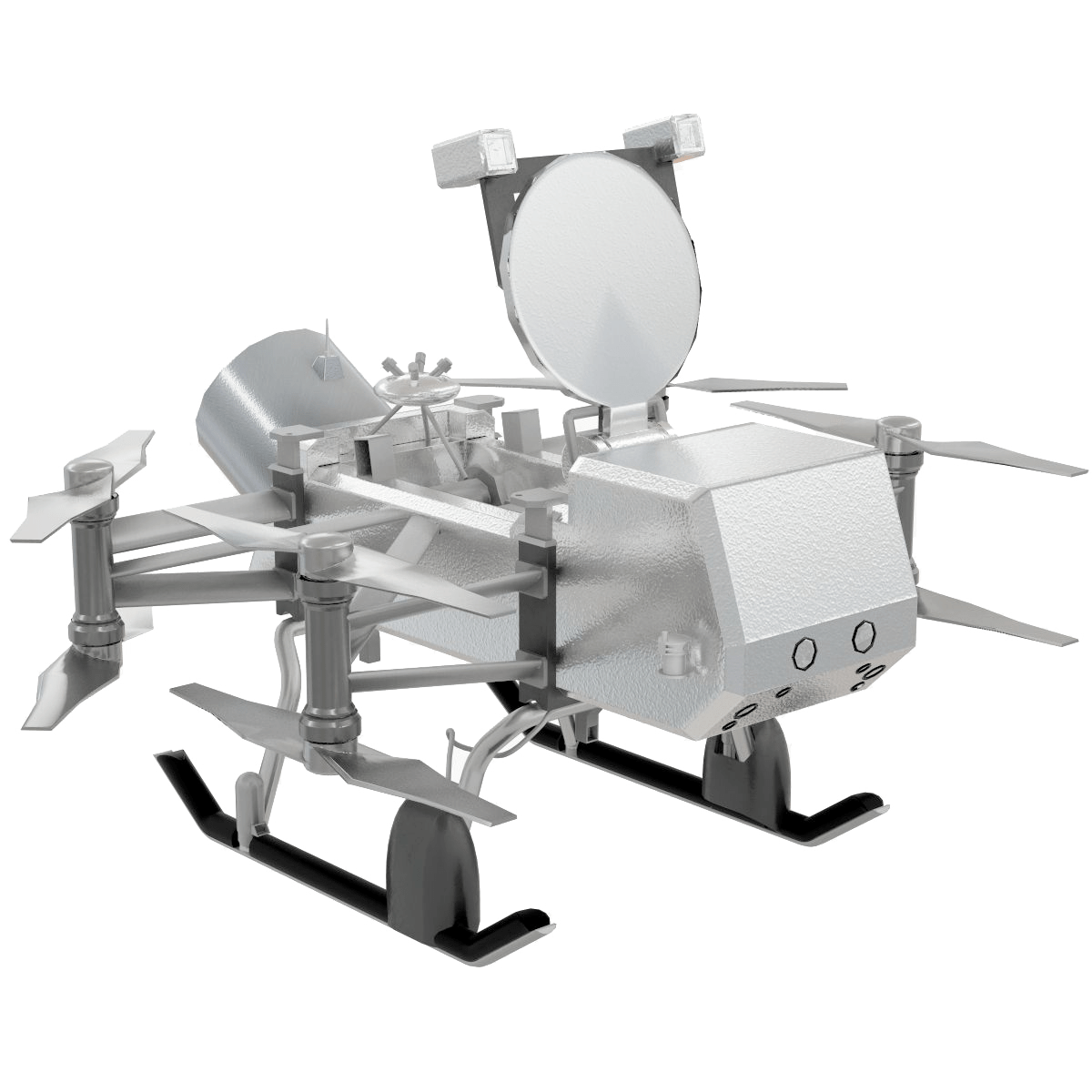
50 km
Barnes et al. 2021
reprocessedPost Cassini
JWST observations (👀 C. Nixon's talk)
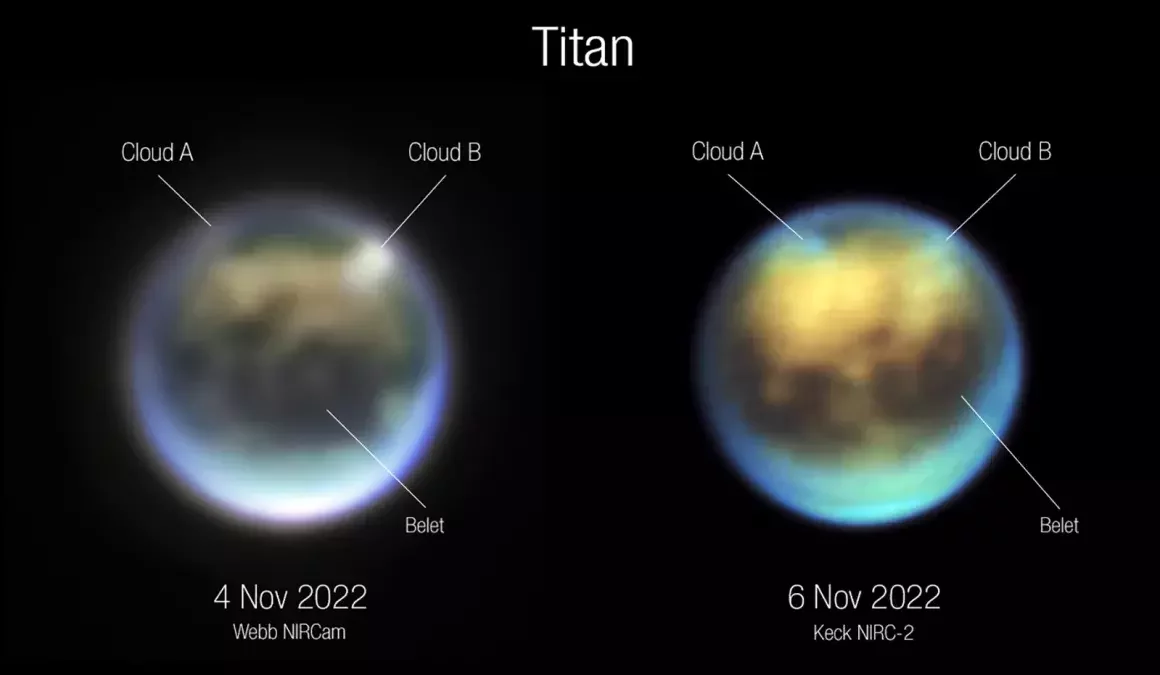
Nixon et al. 2025Adapted from Seignovert et al. 2021

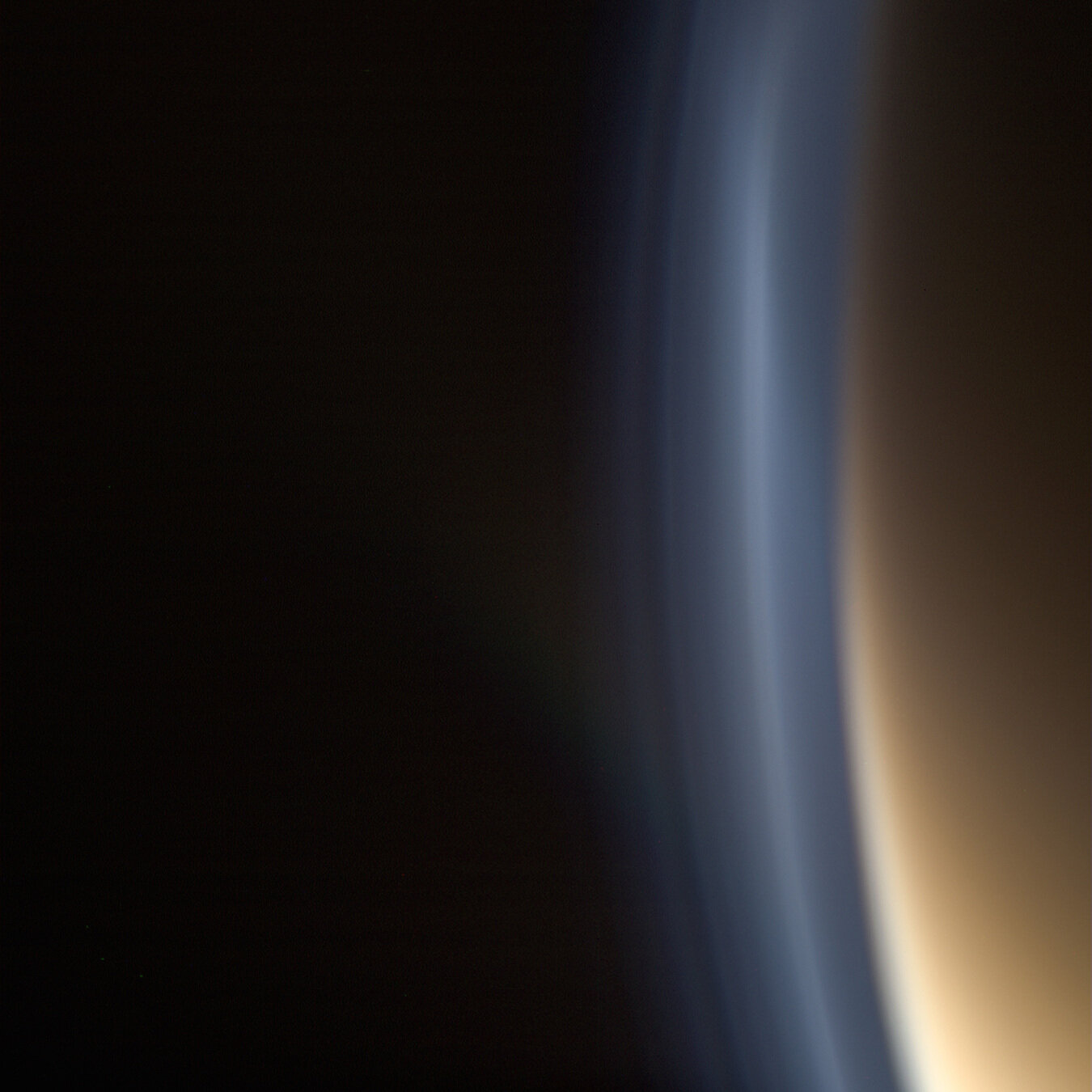
20 years celebration of Huygens landingConclusions
Seeing through Titan's haze is hard!
It's surface is only visible in limited IR windows
Titan's atmosphere is unique in the solar system
It took 13+ years to build global maps
Most of its surface is known at km-scale
Seignovert et al. (2025)
doi: 10.57745/KCR2QM